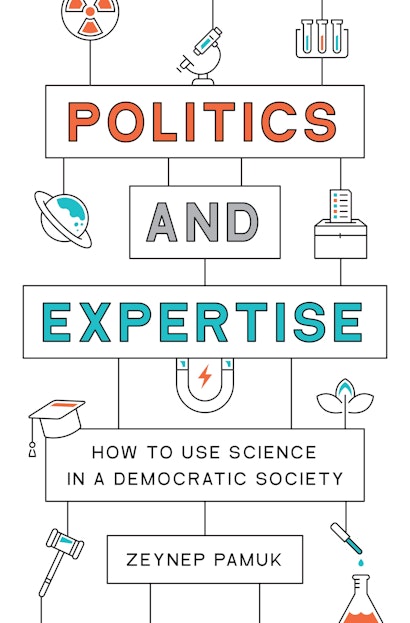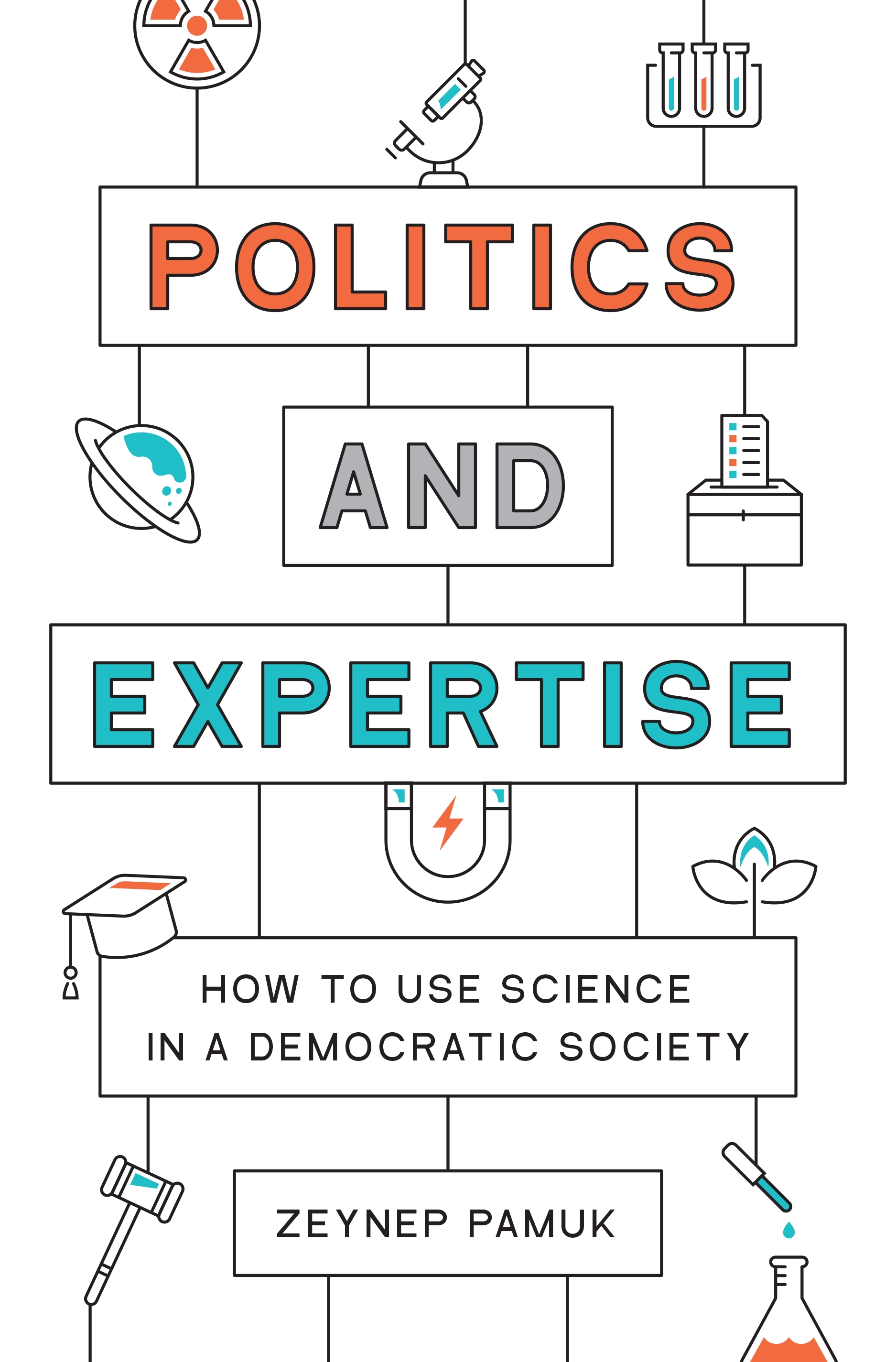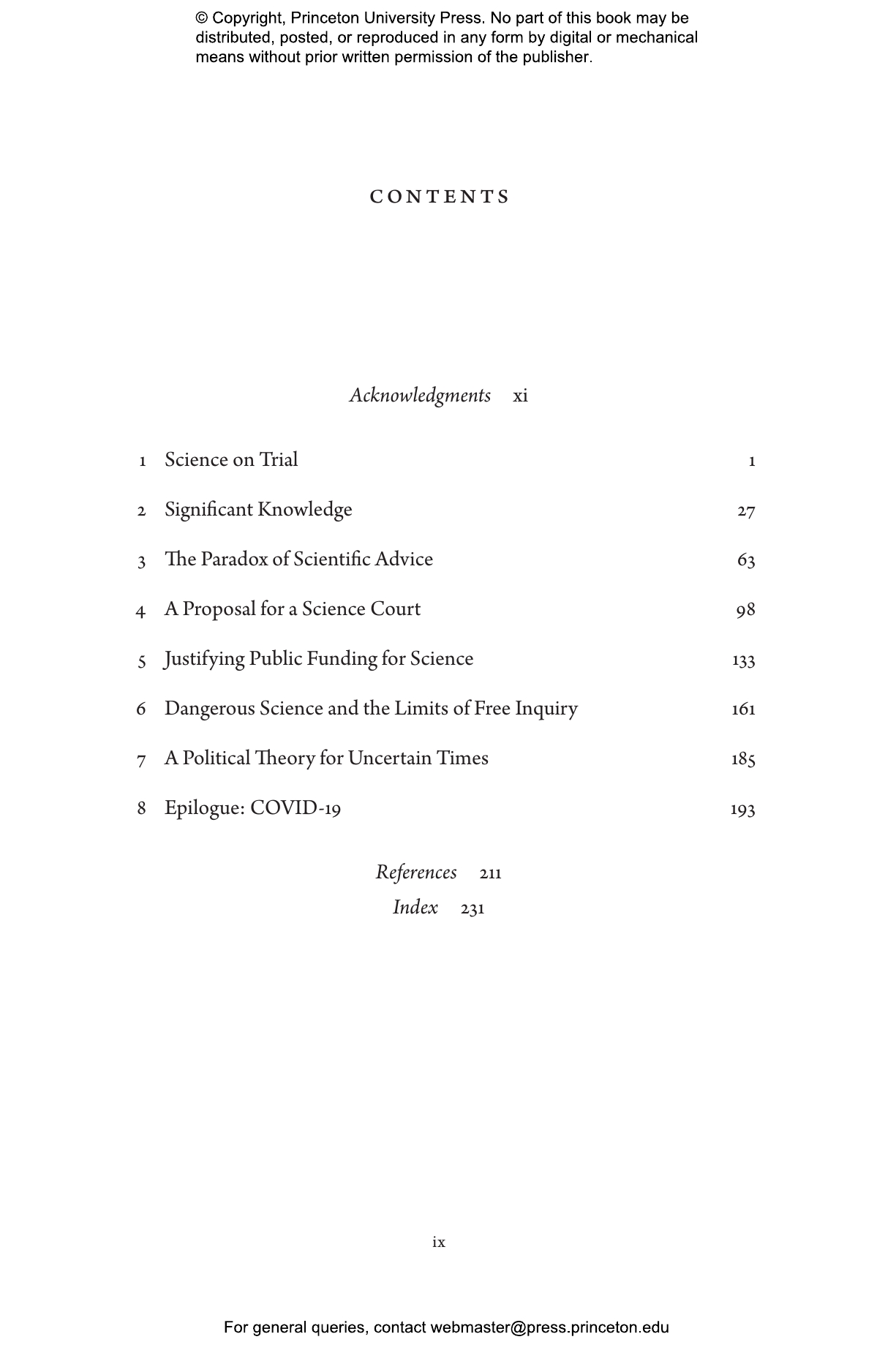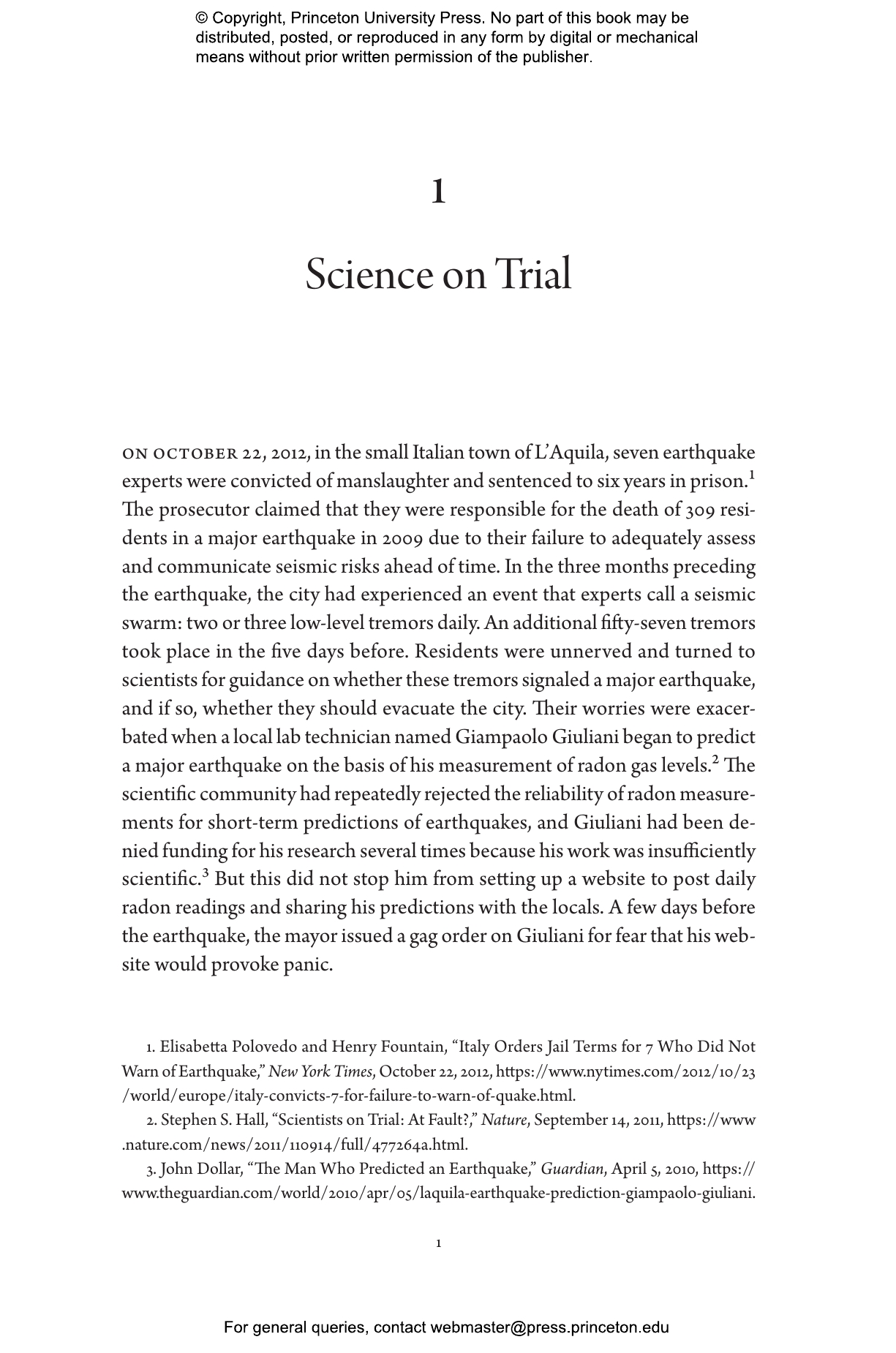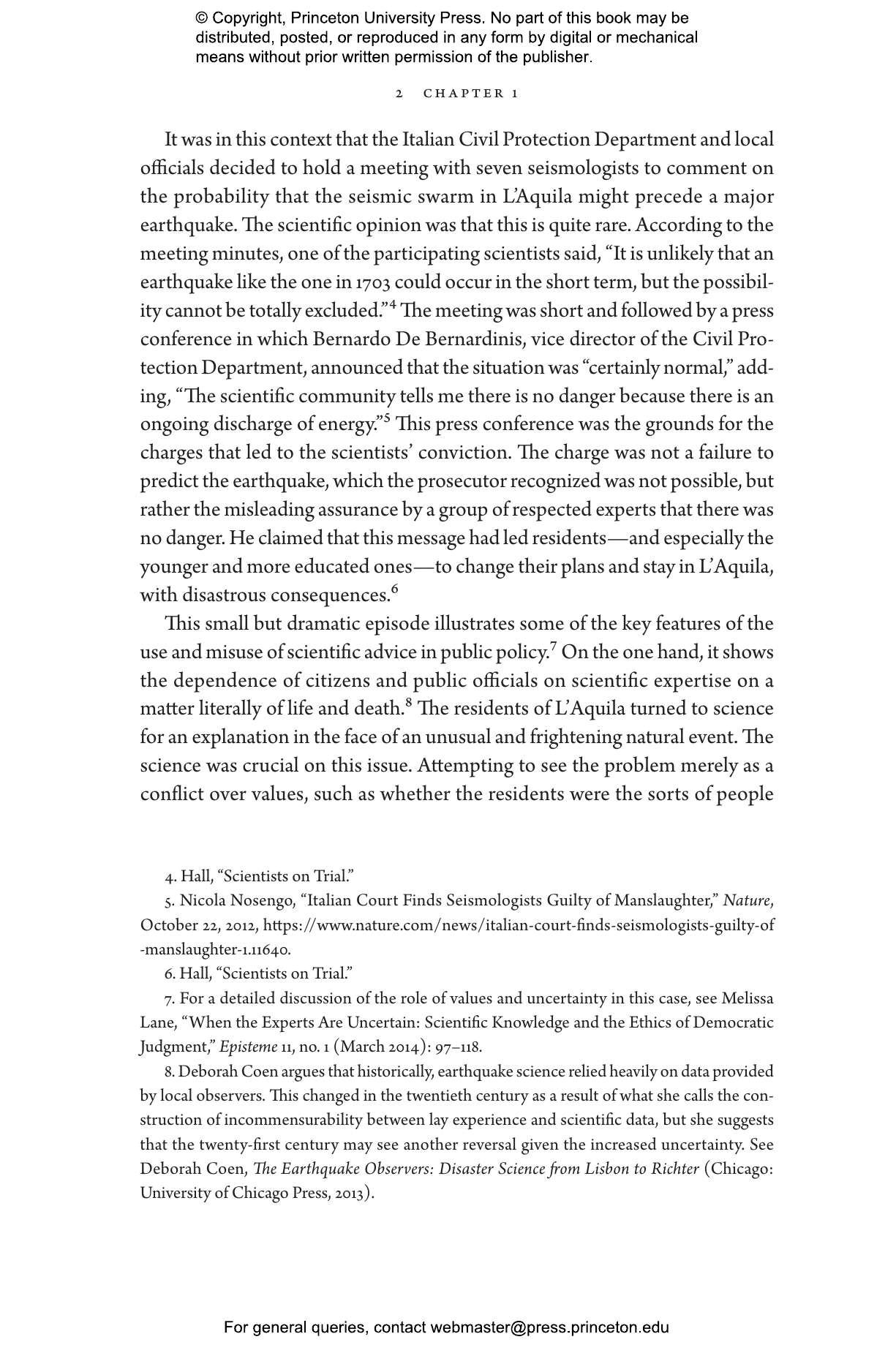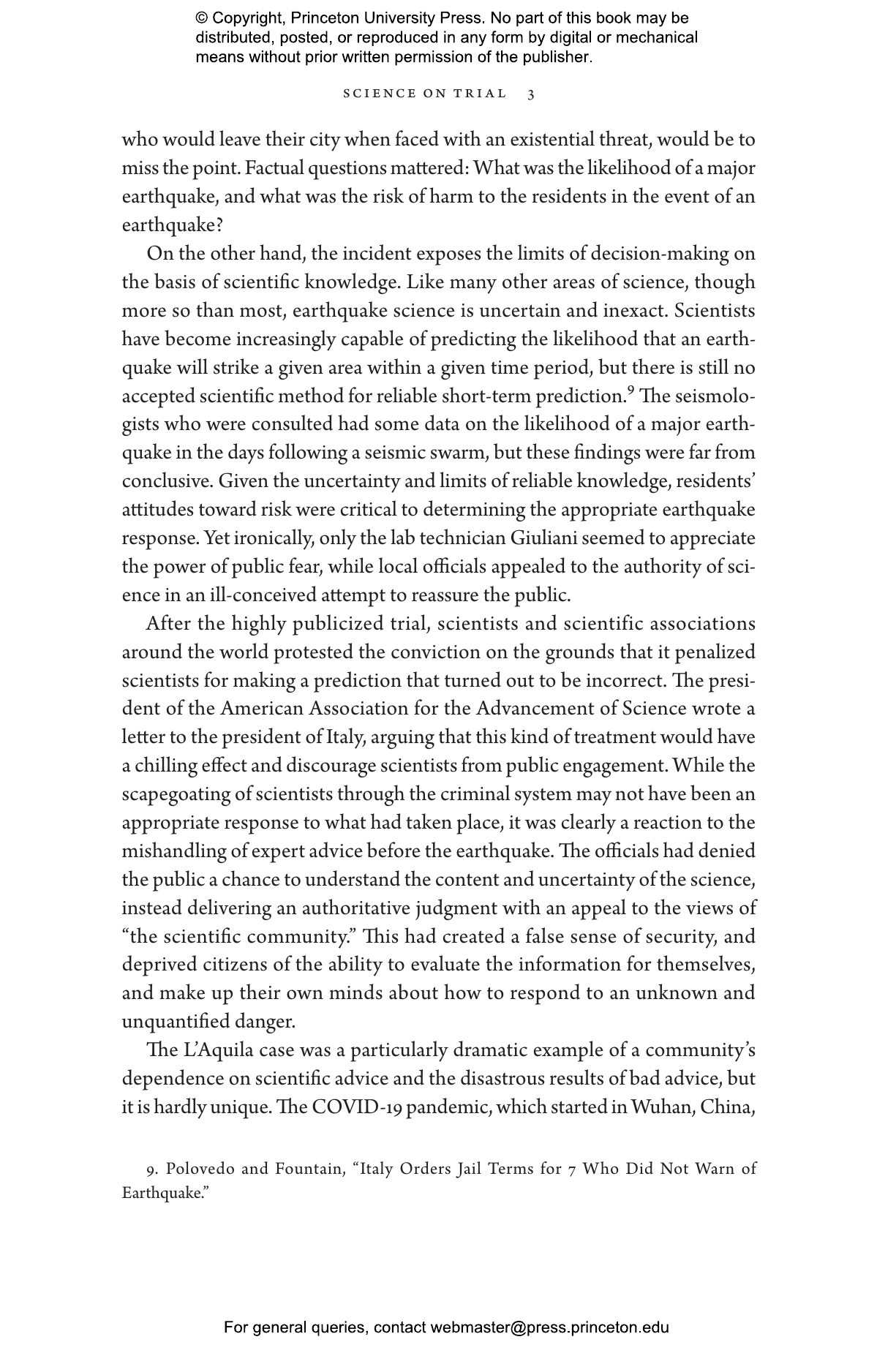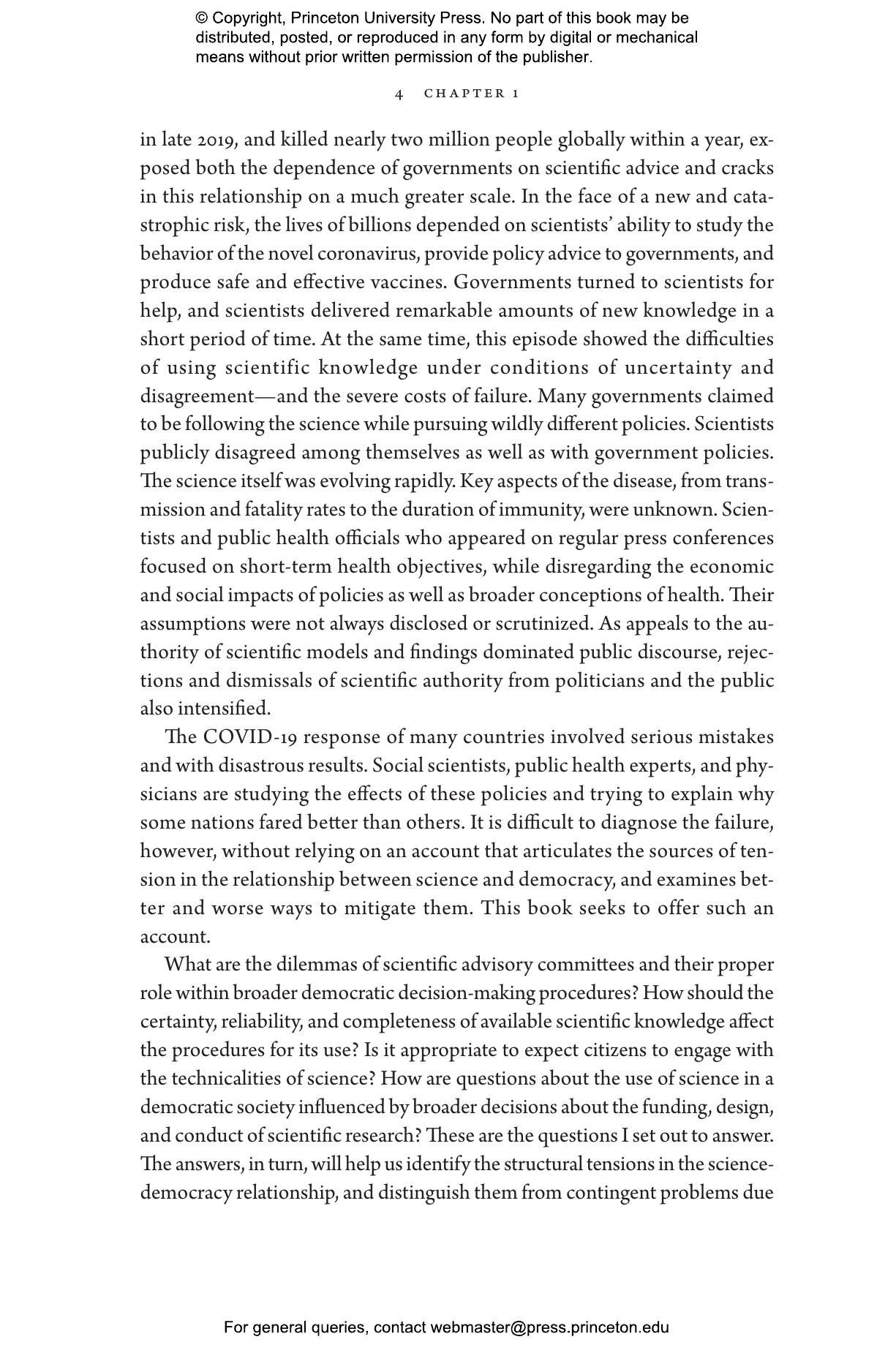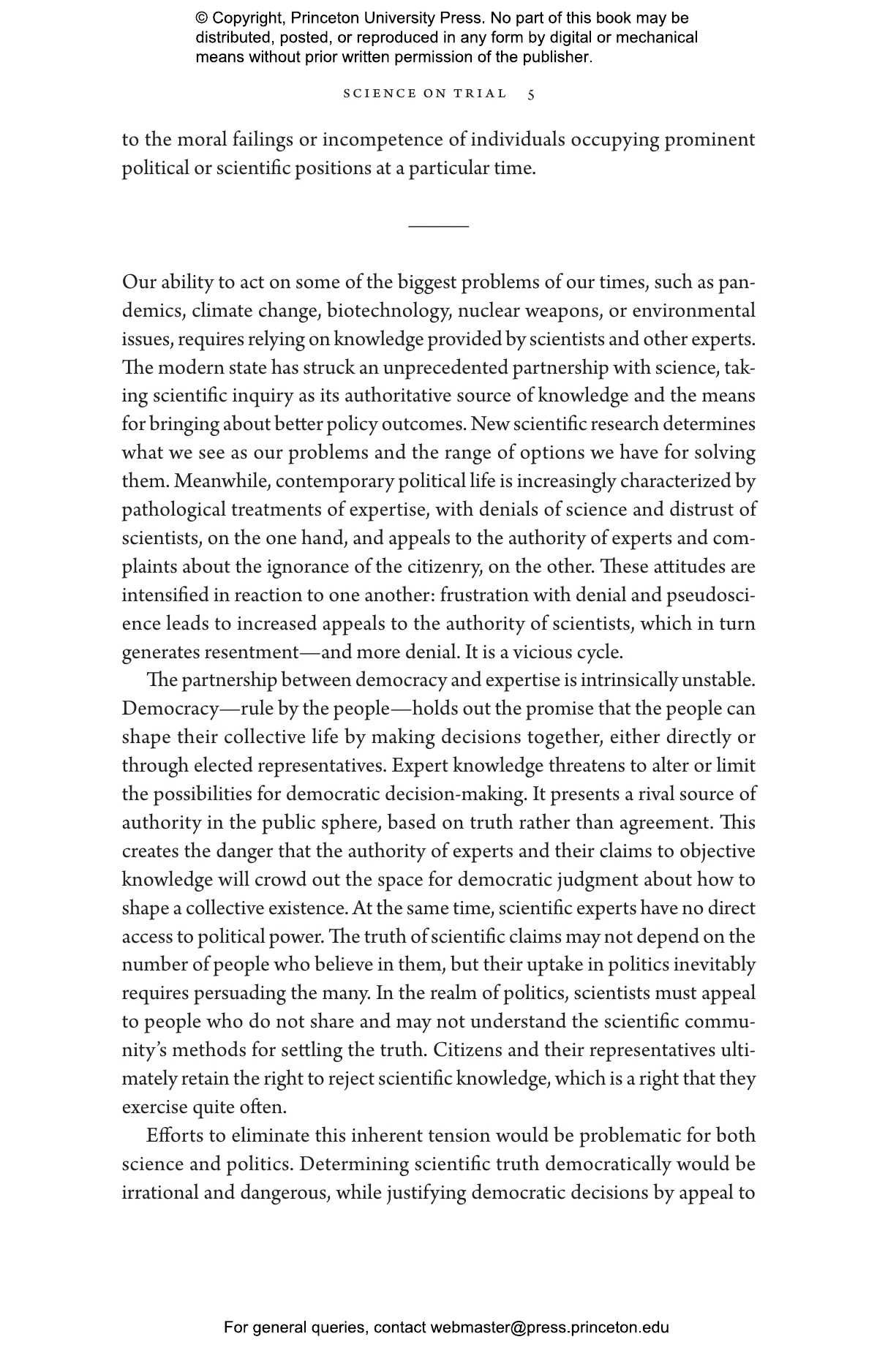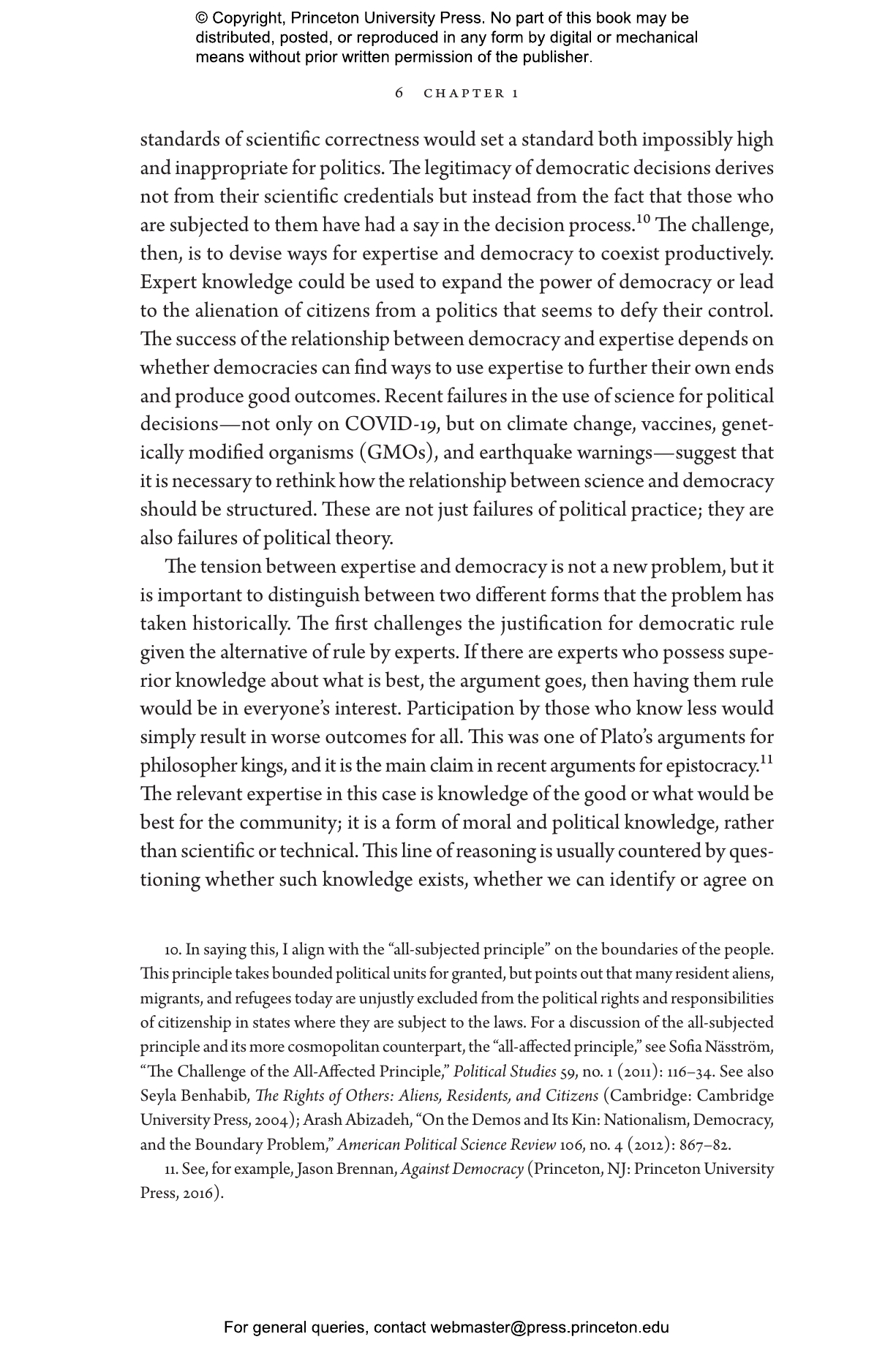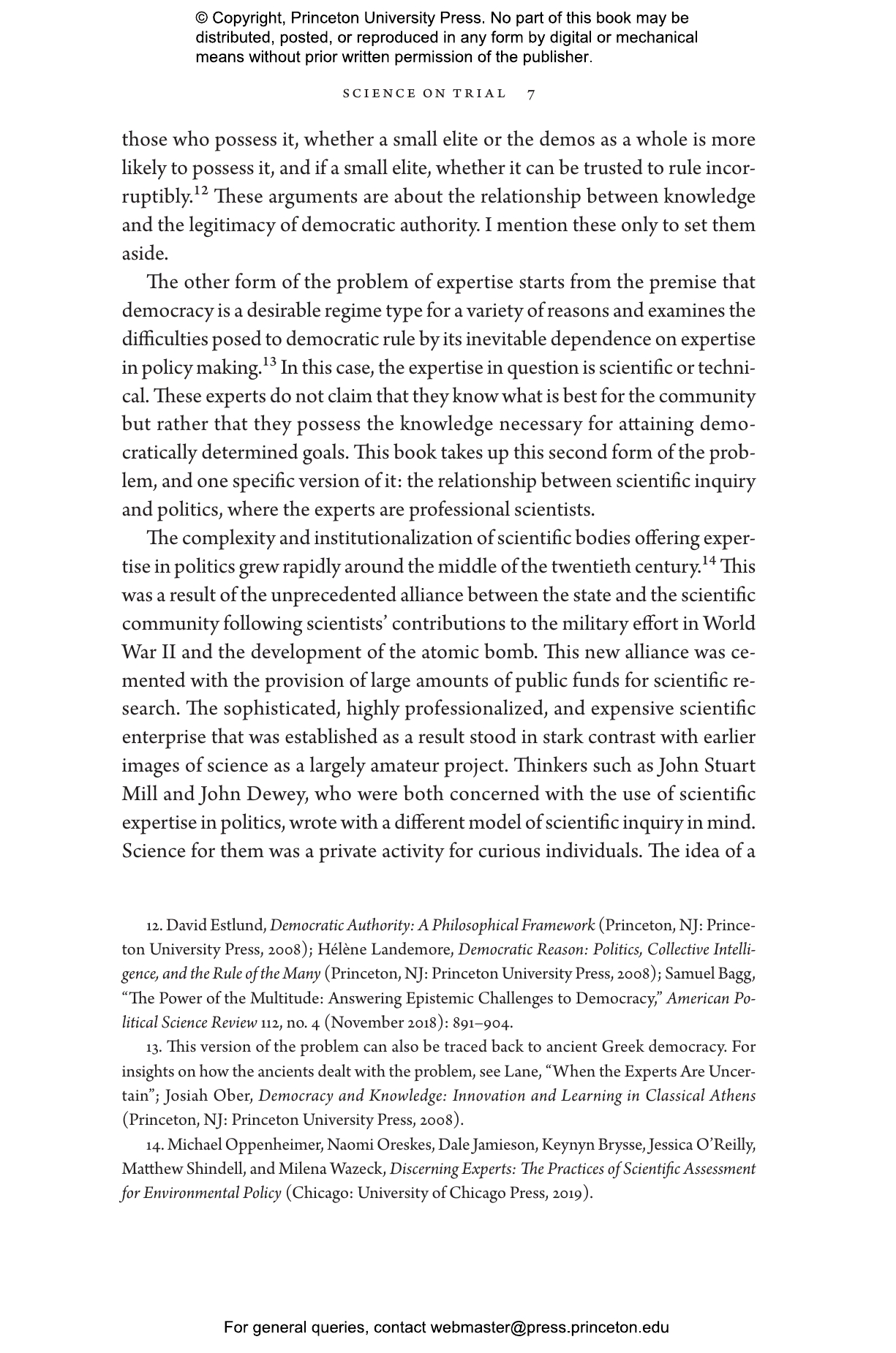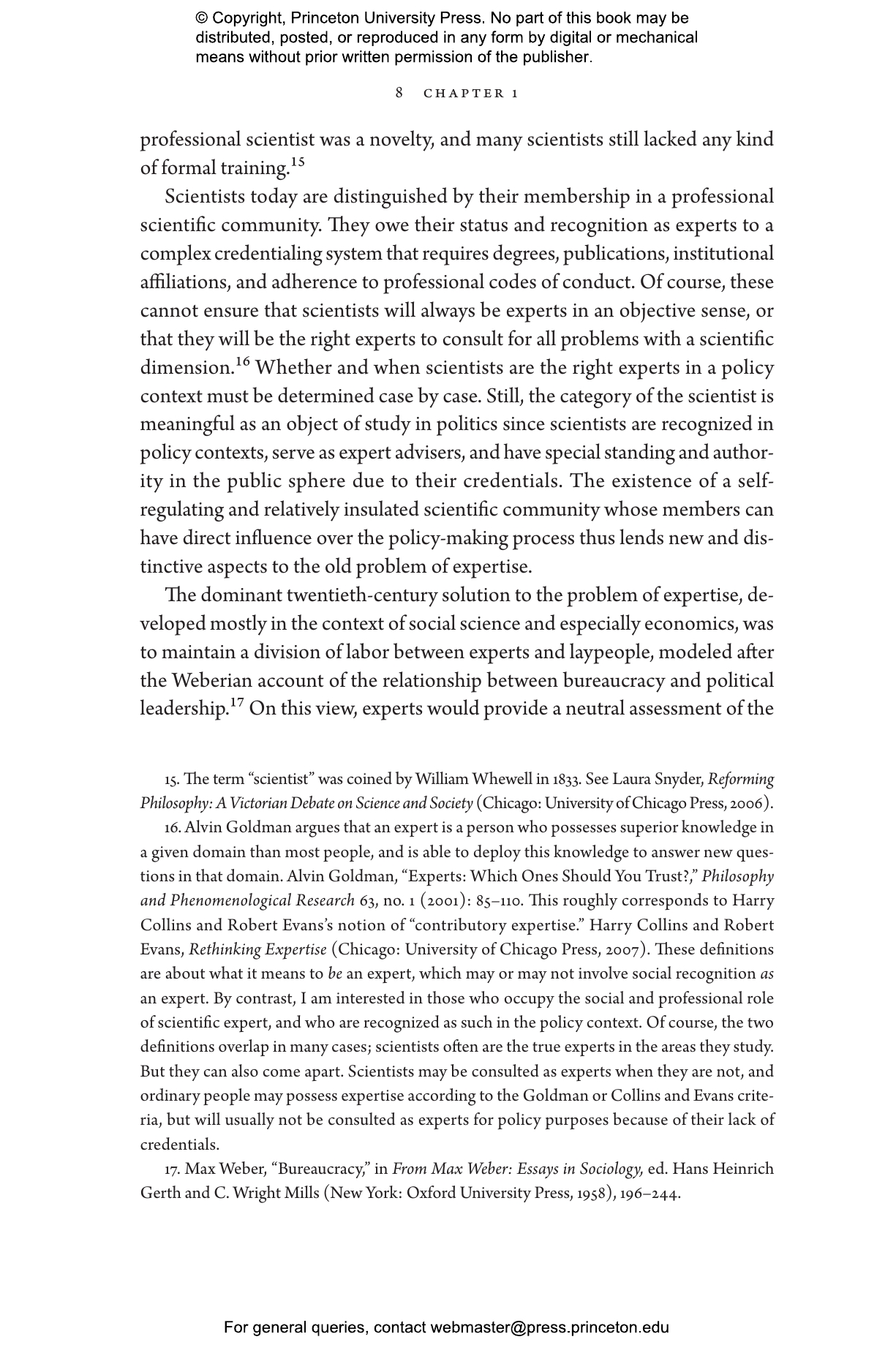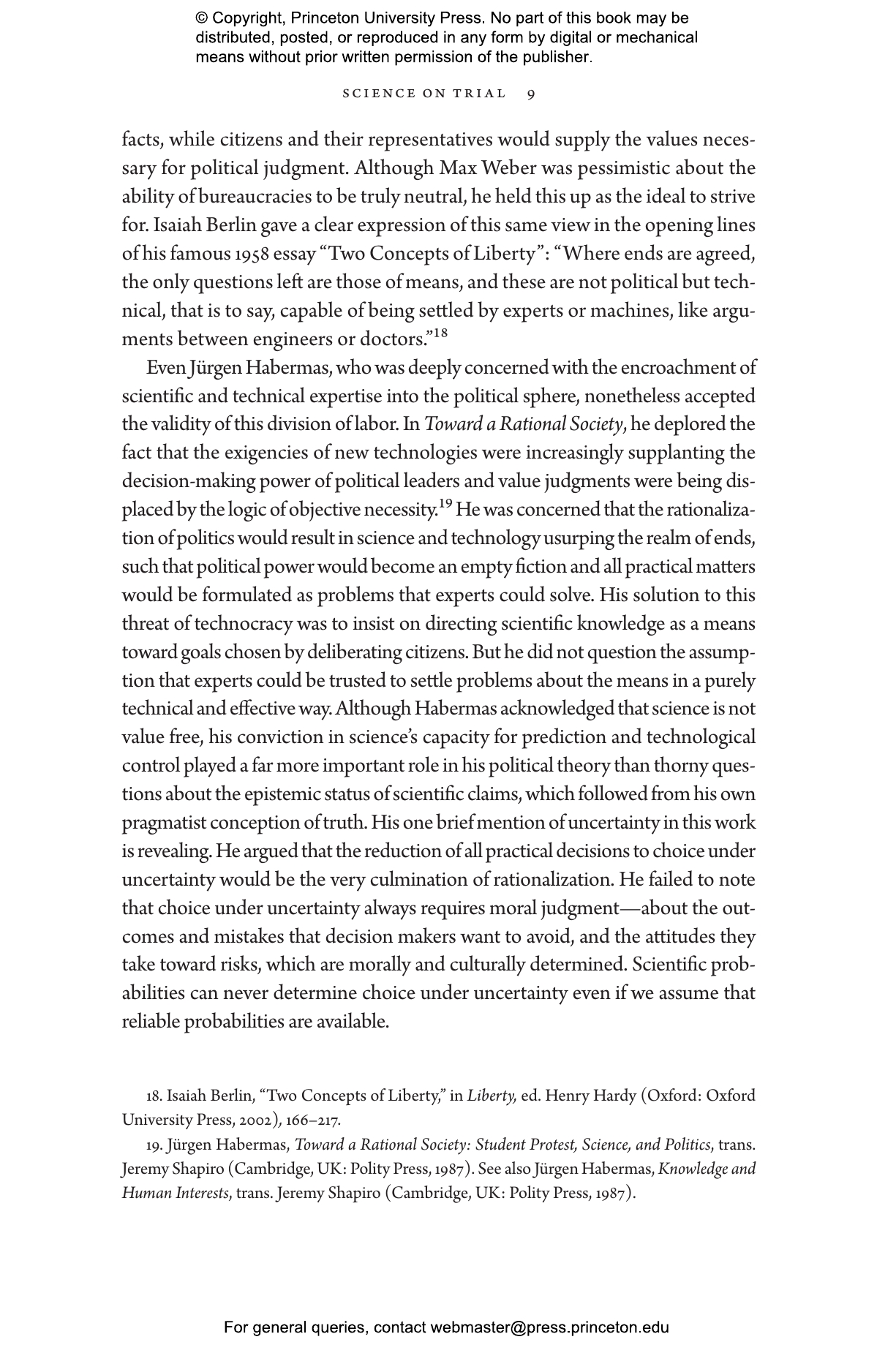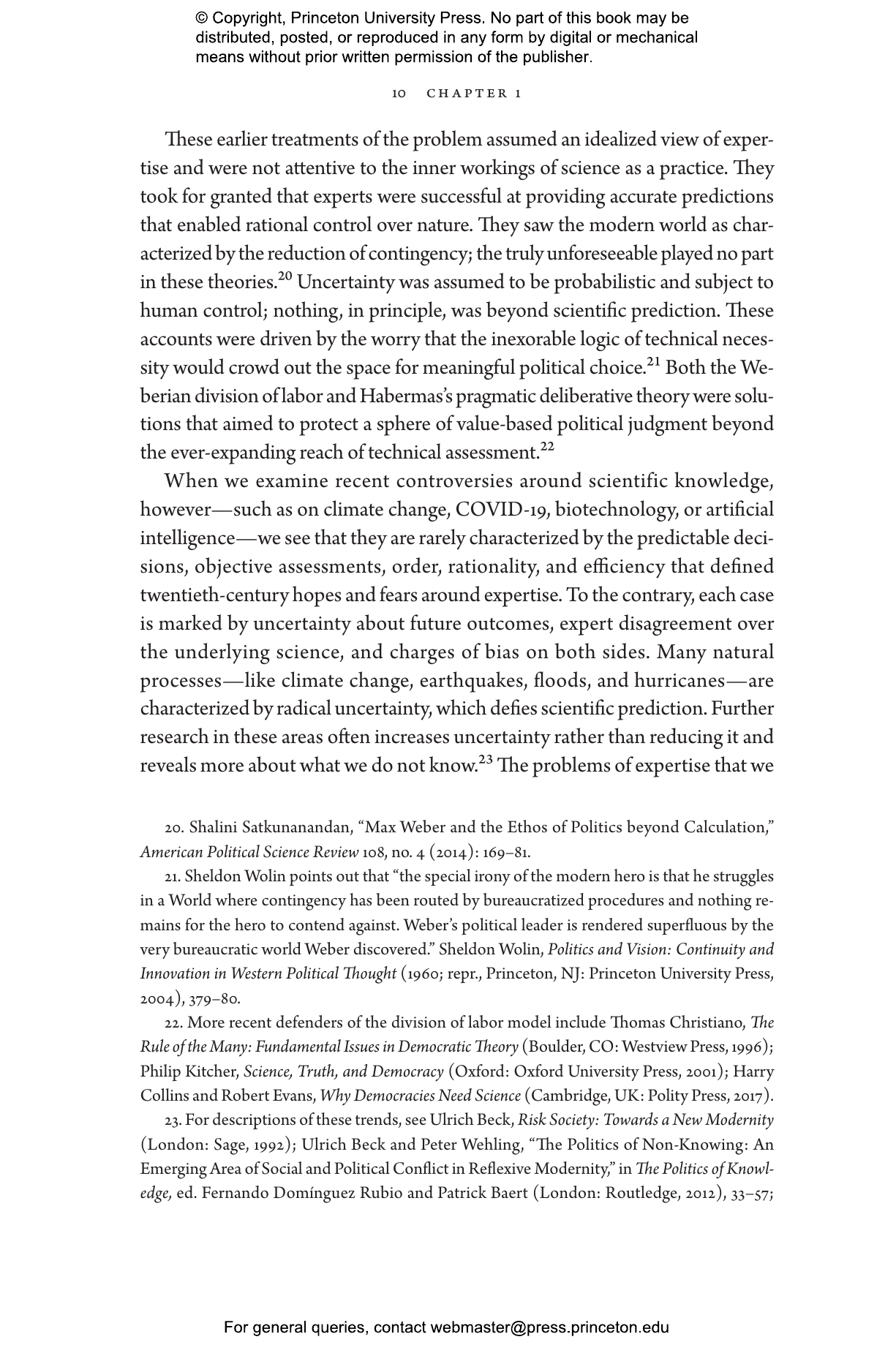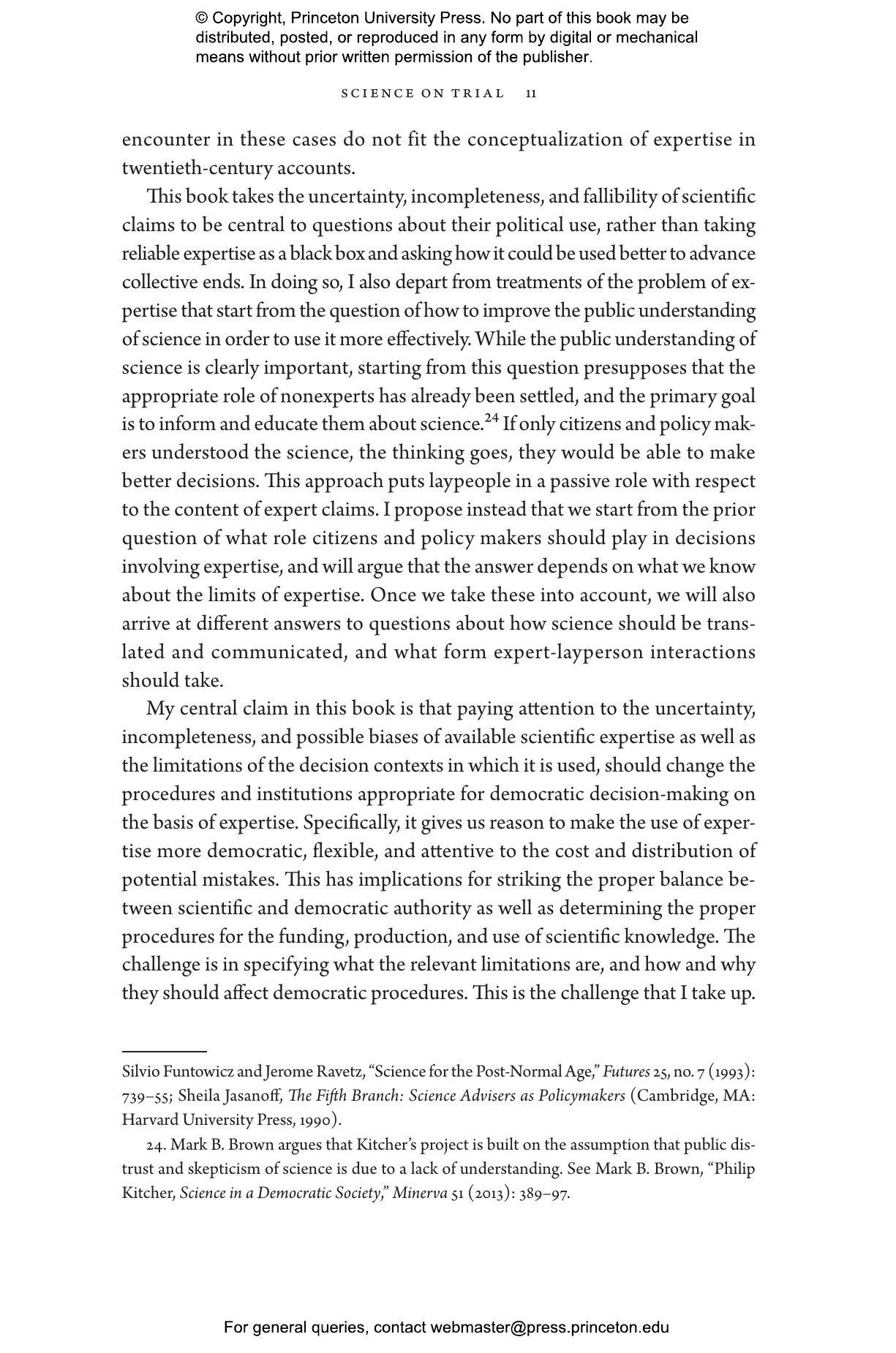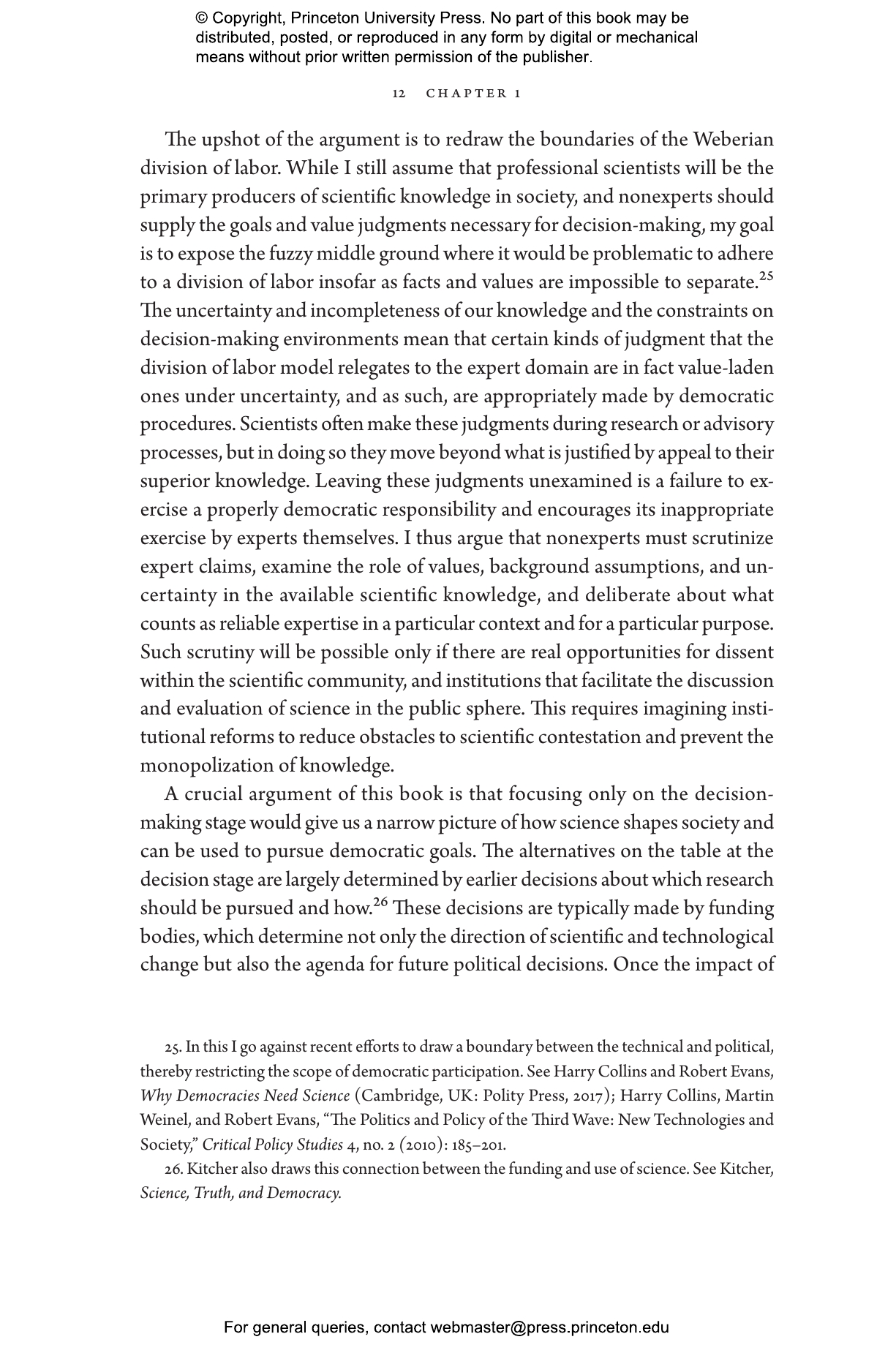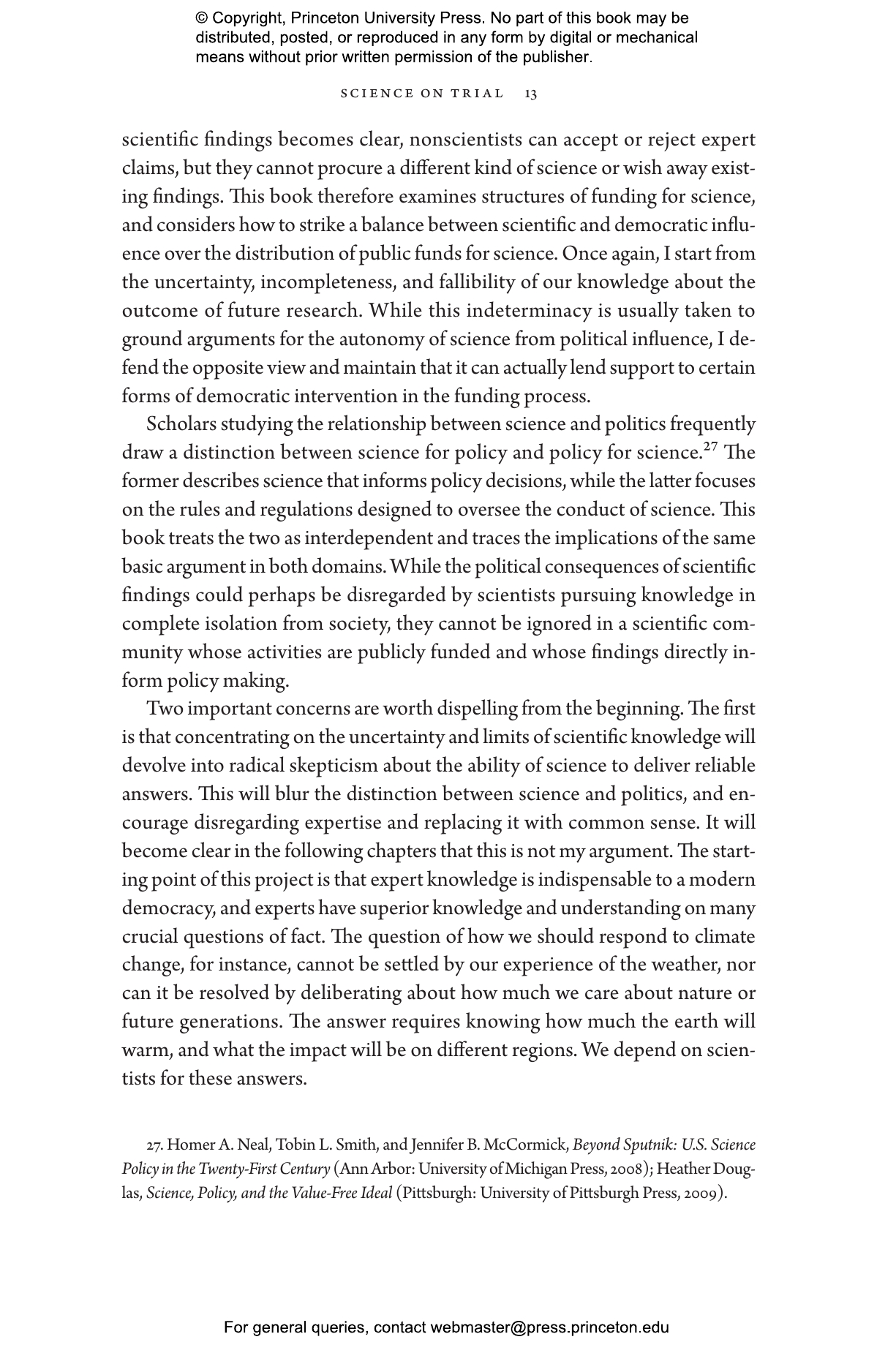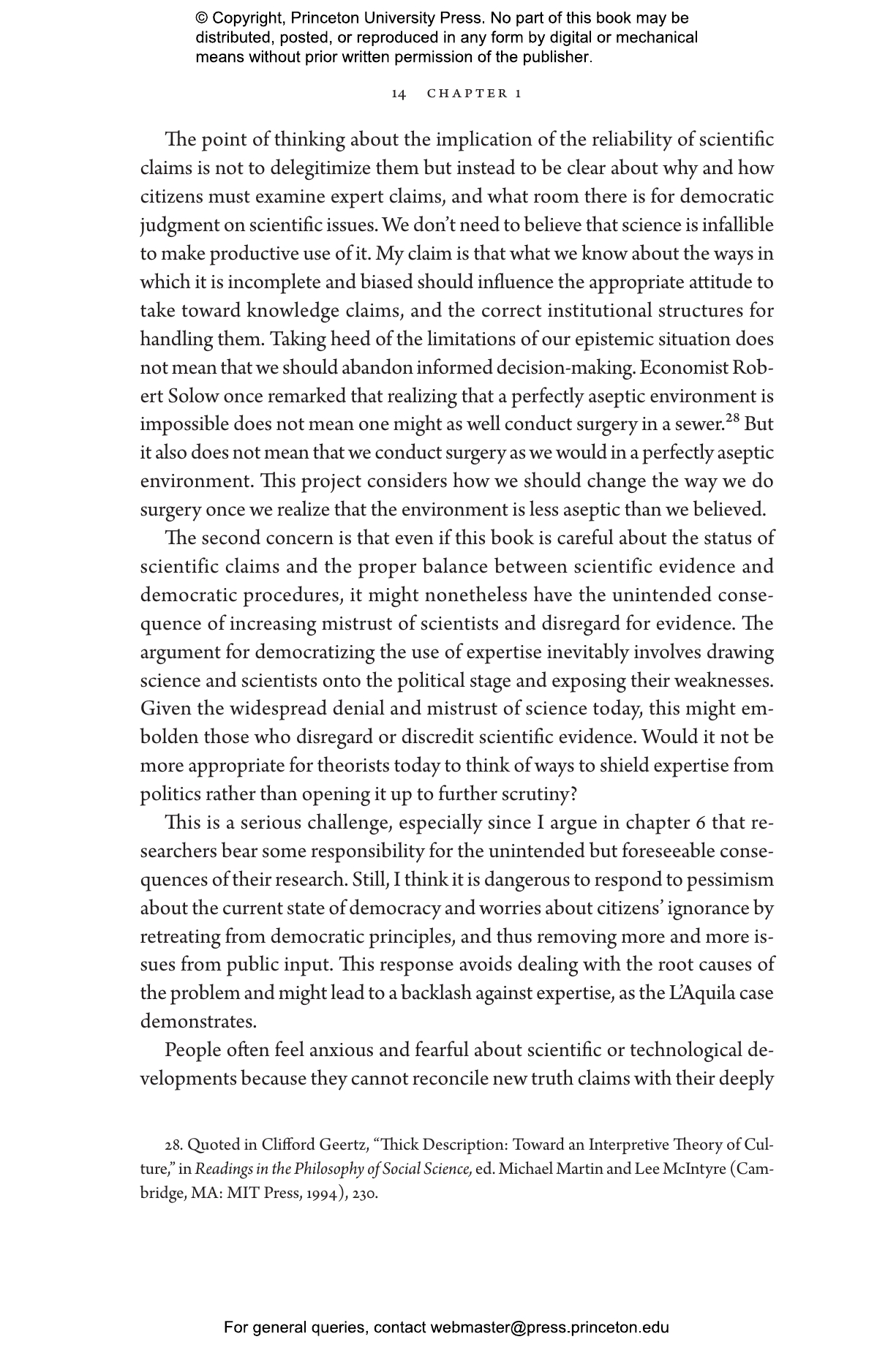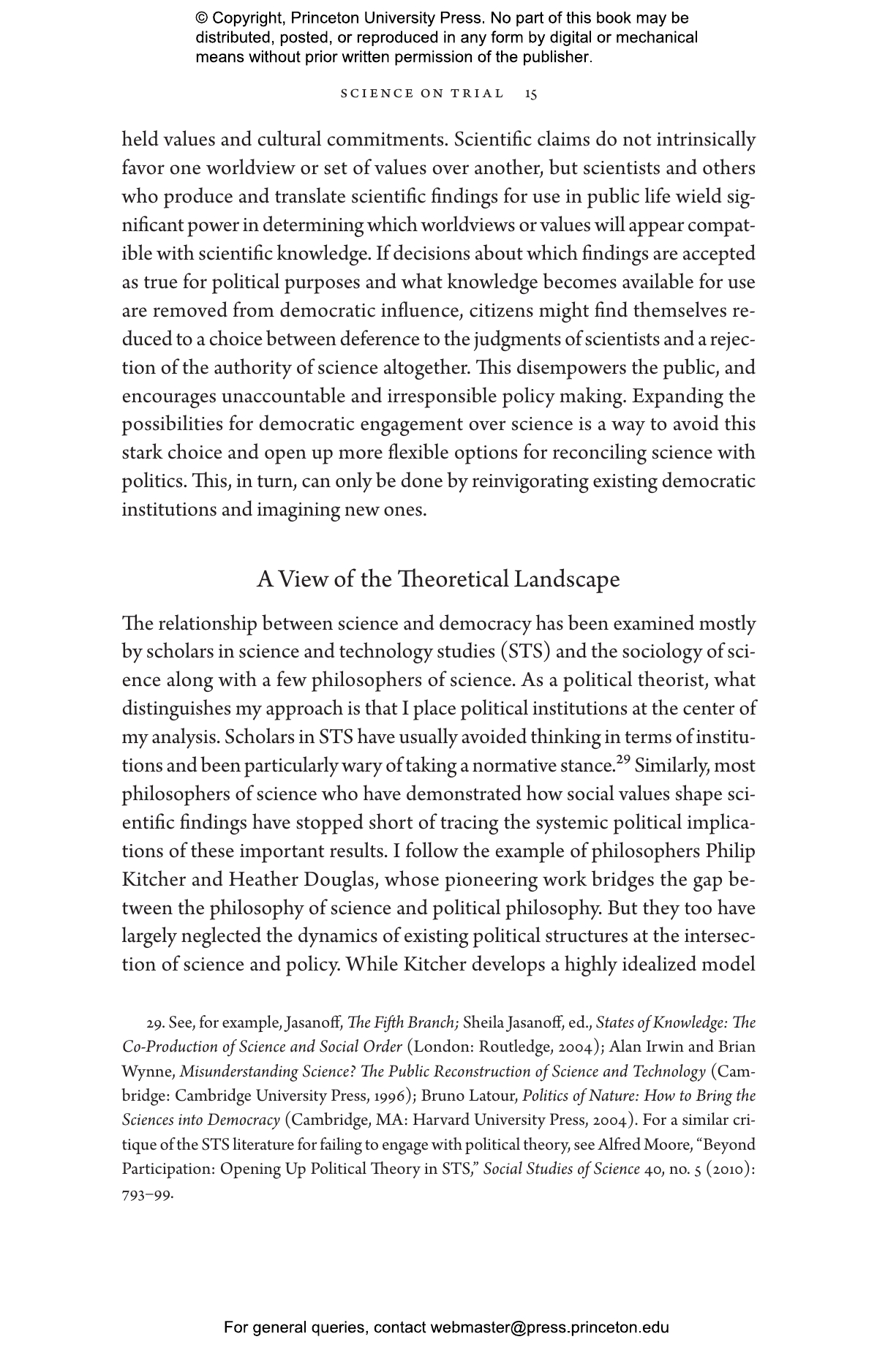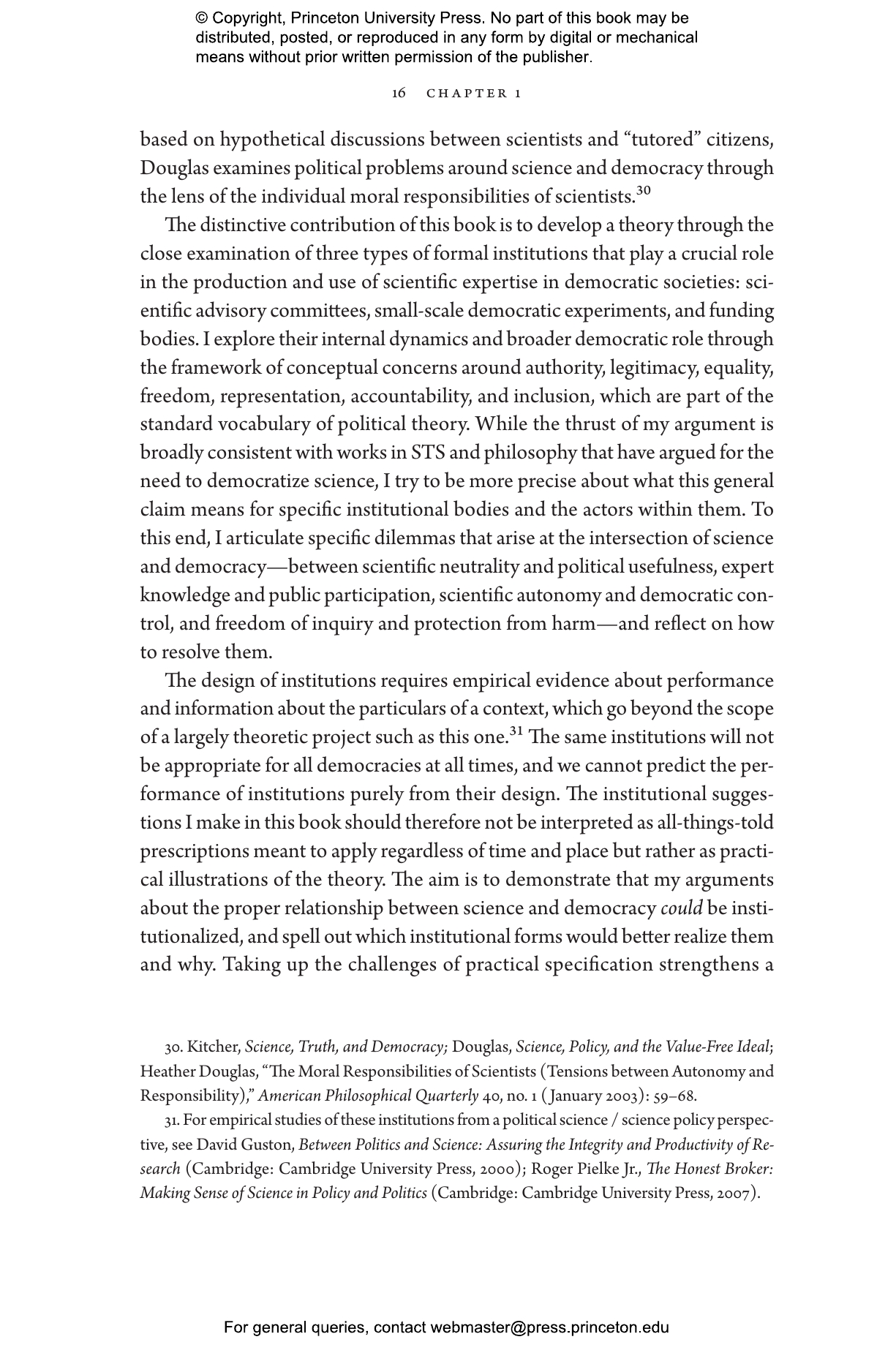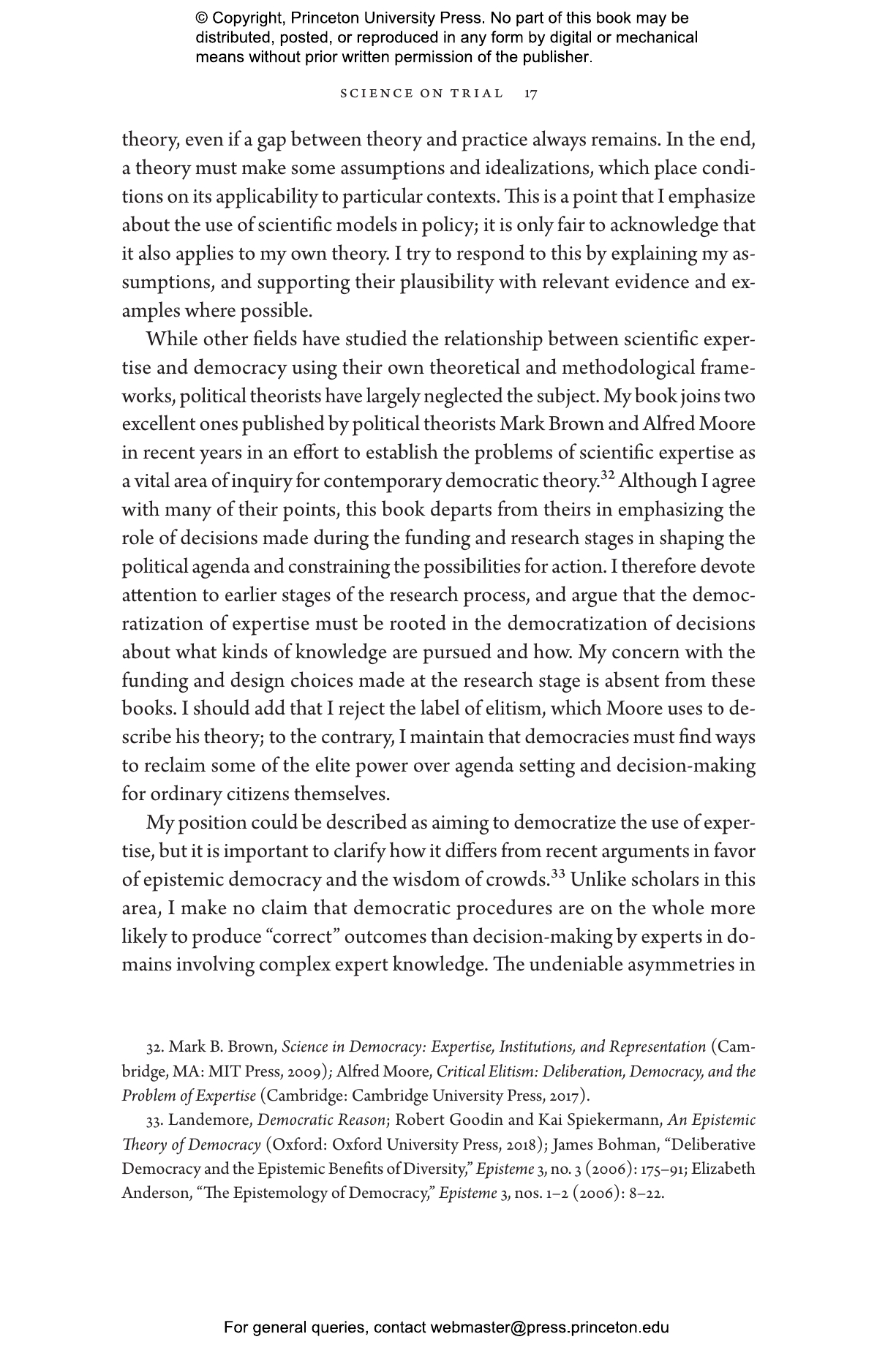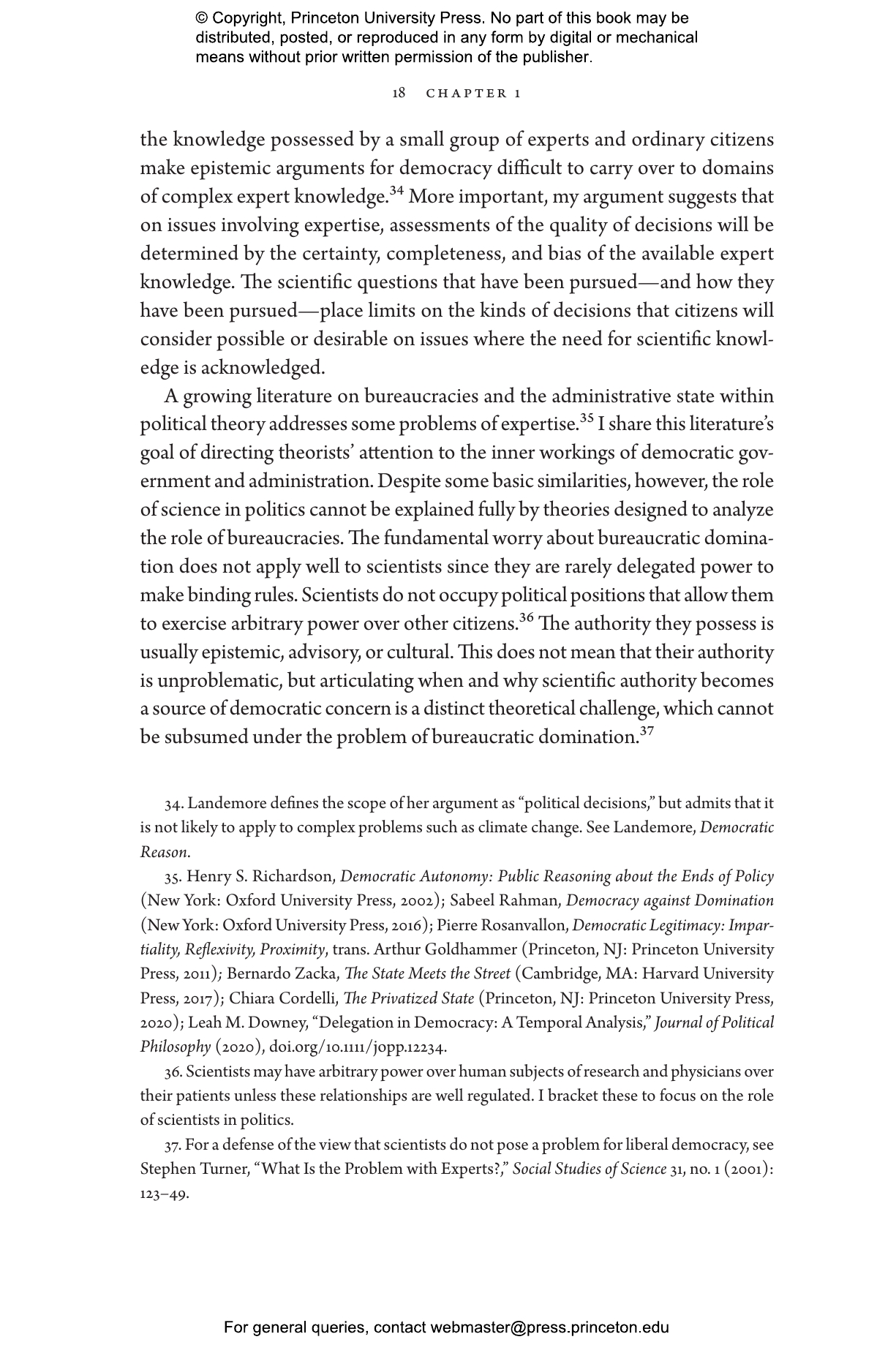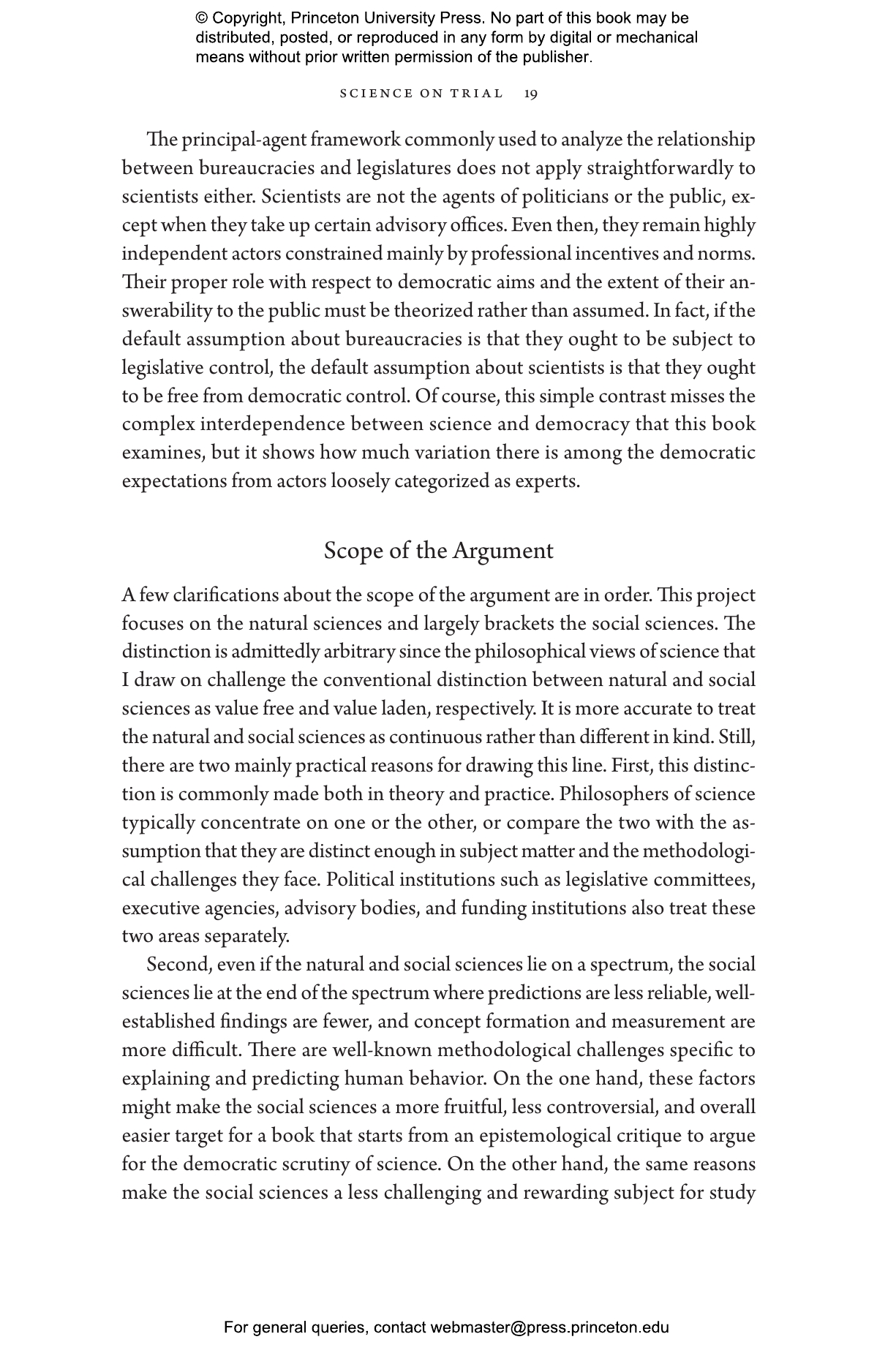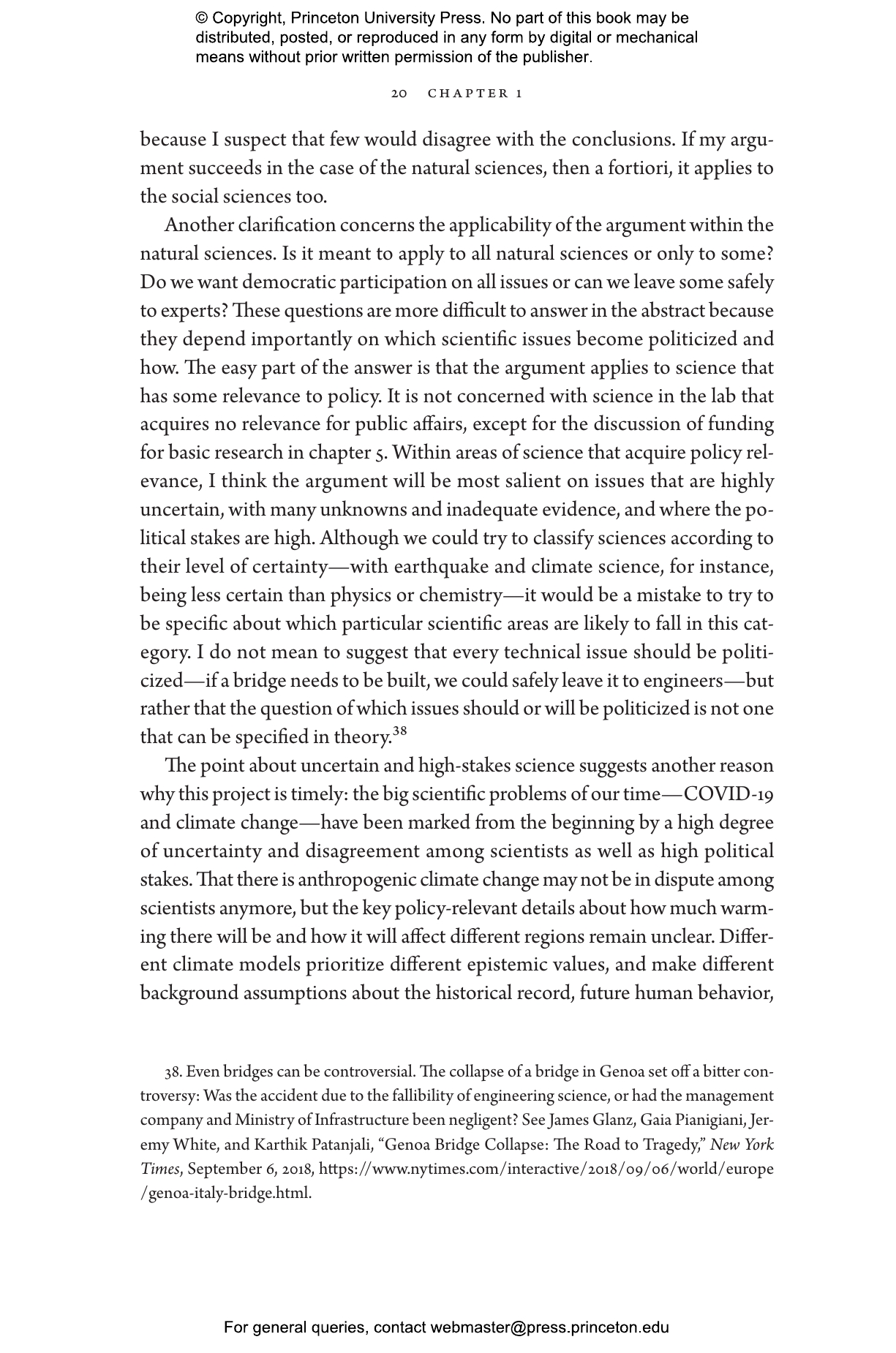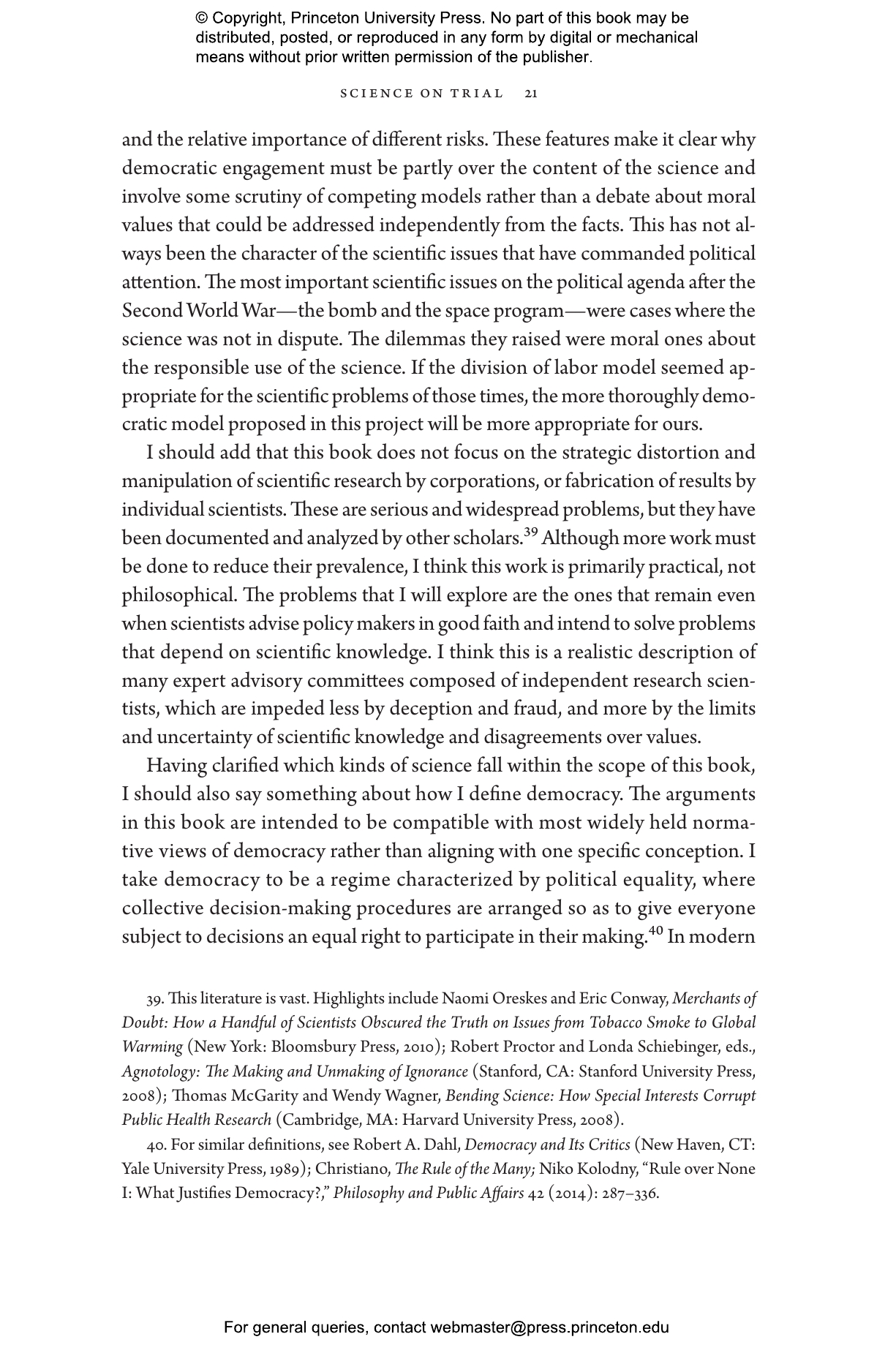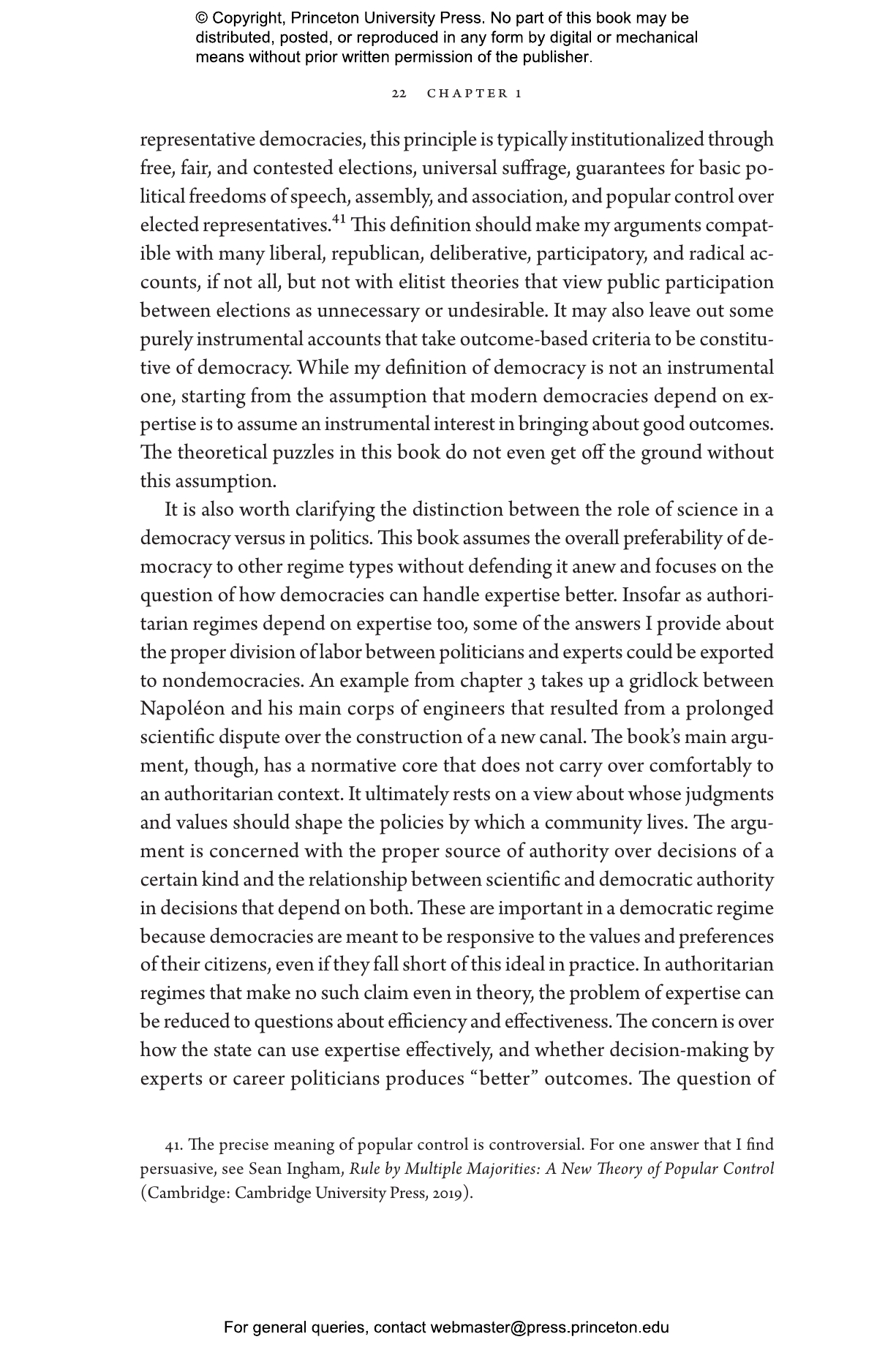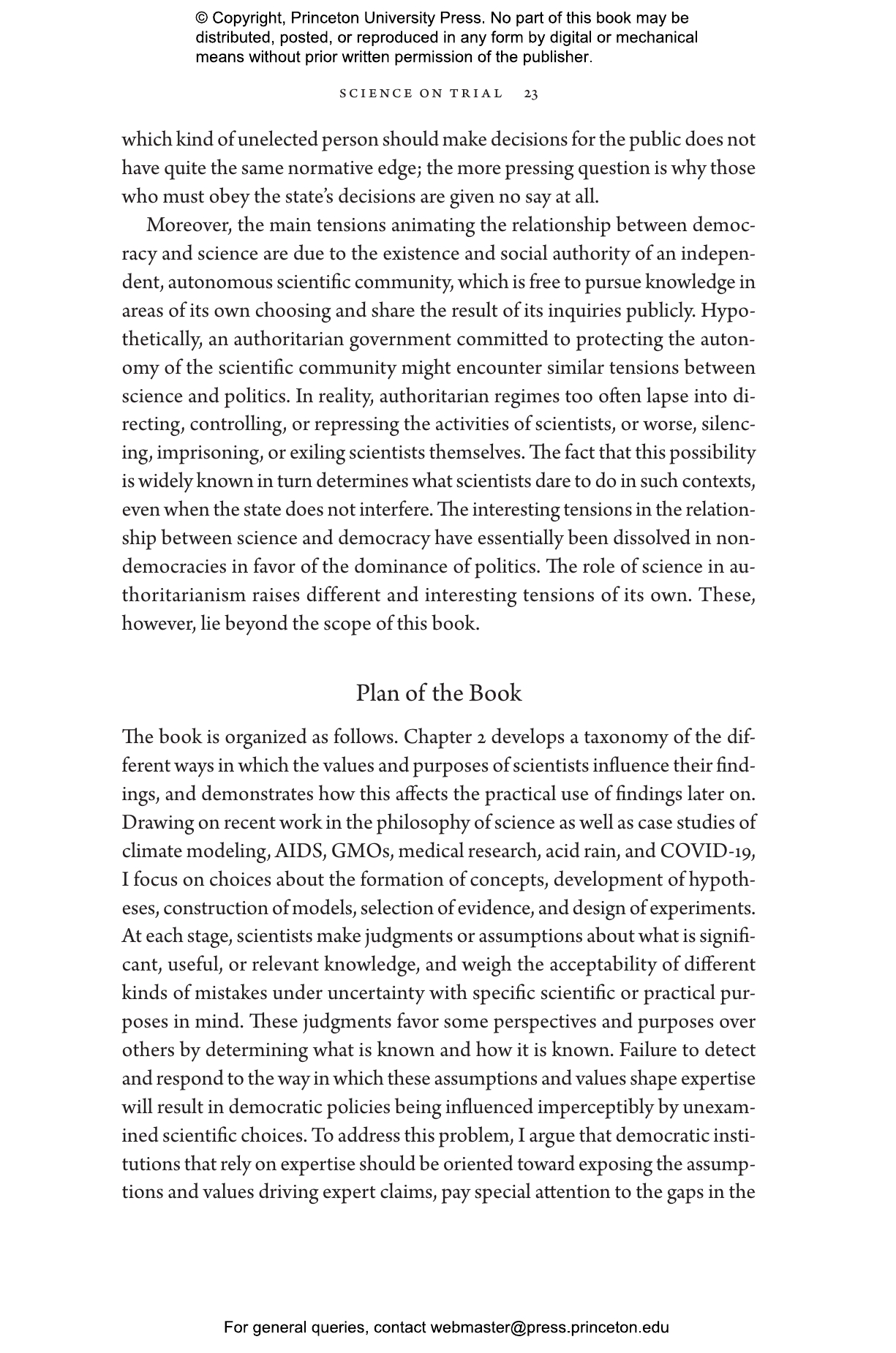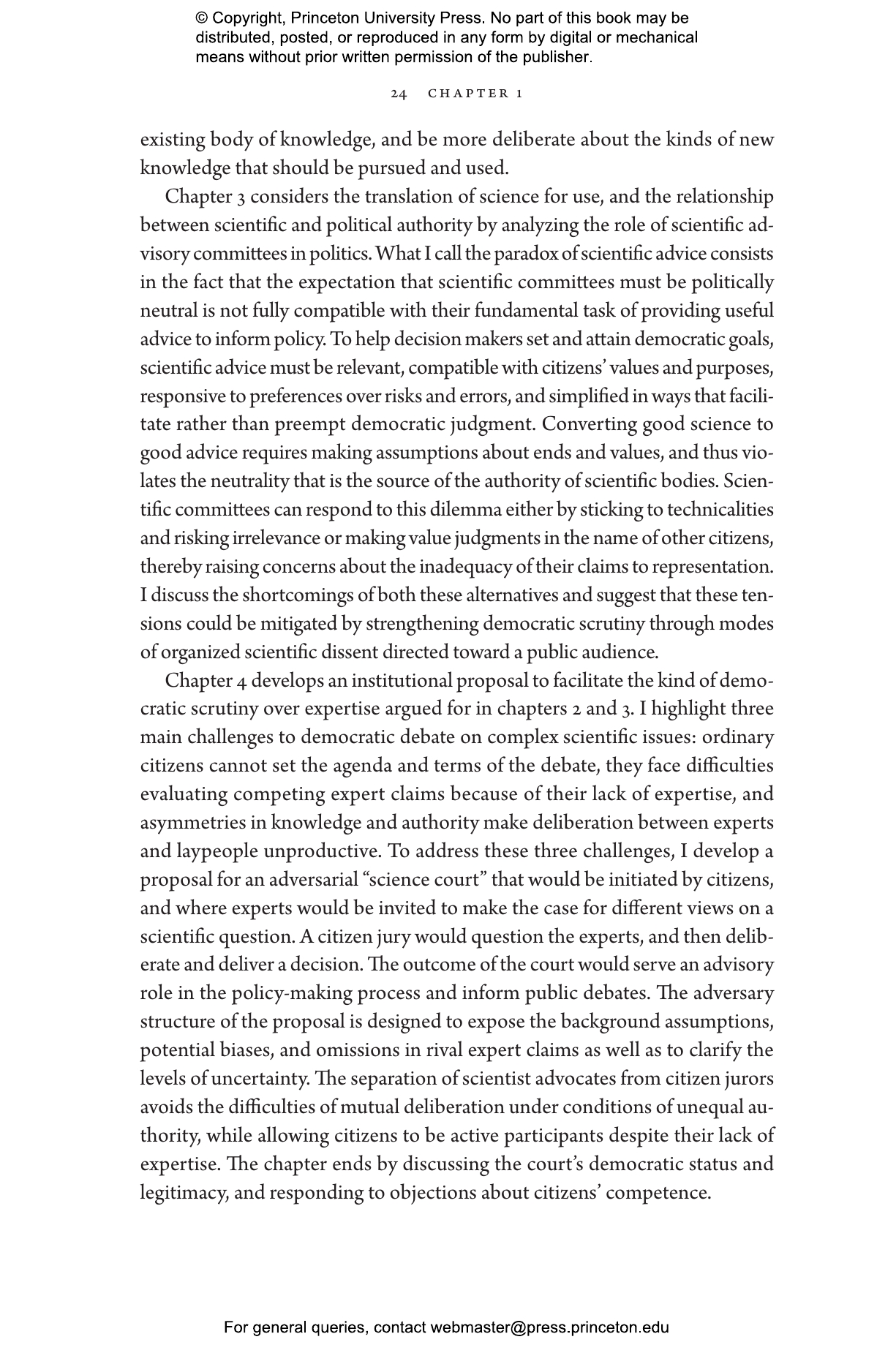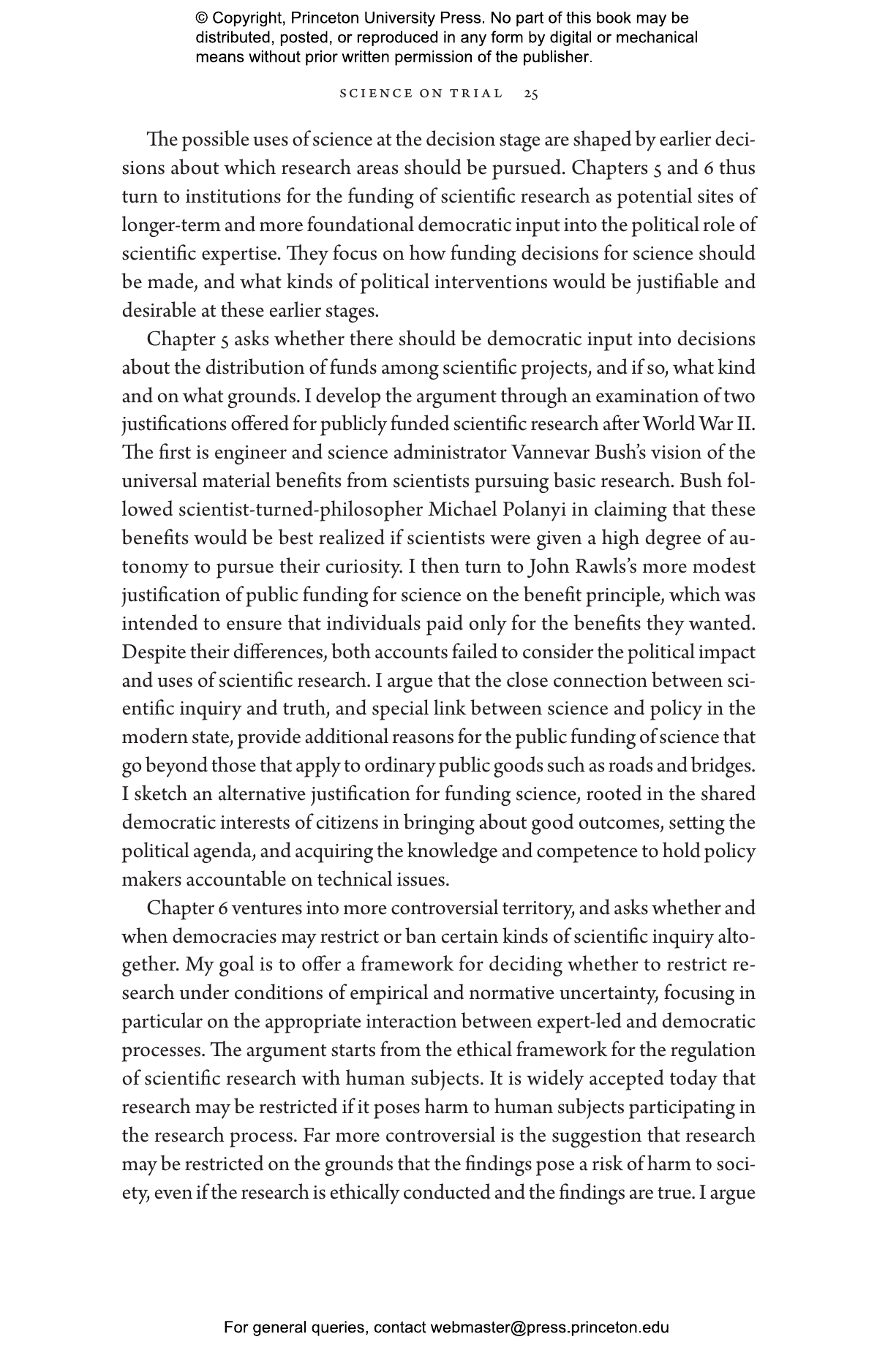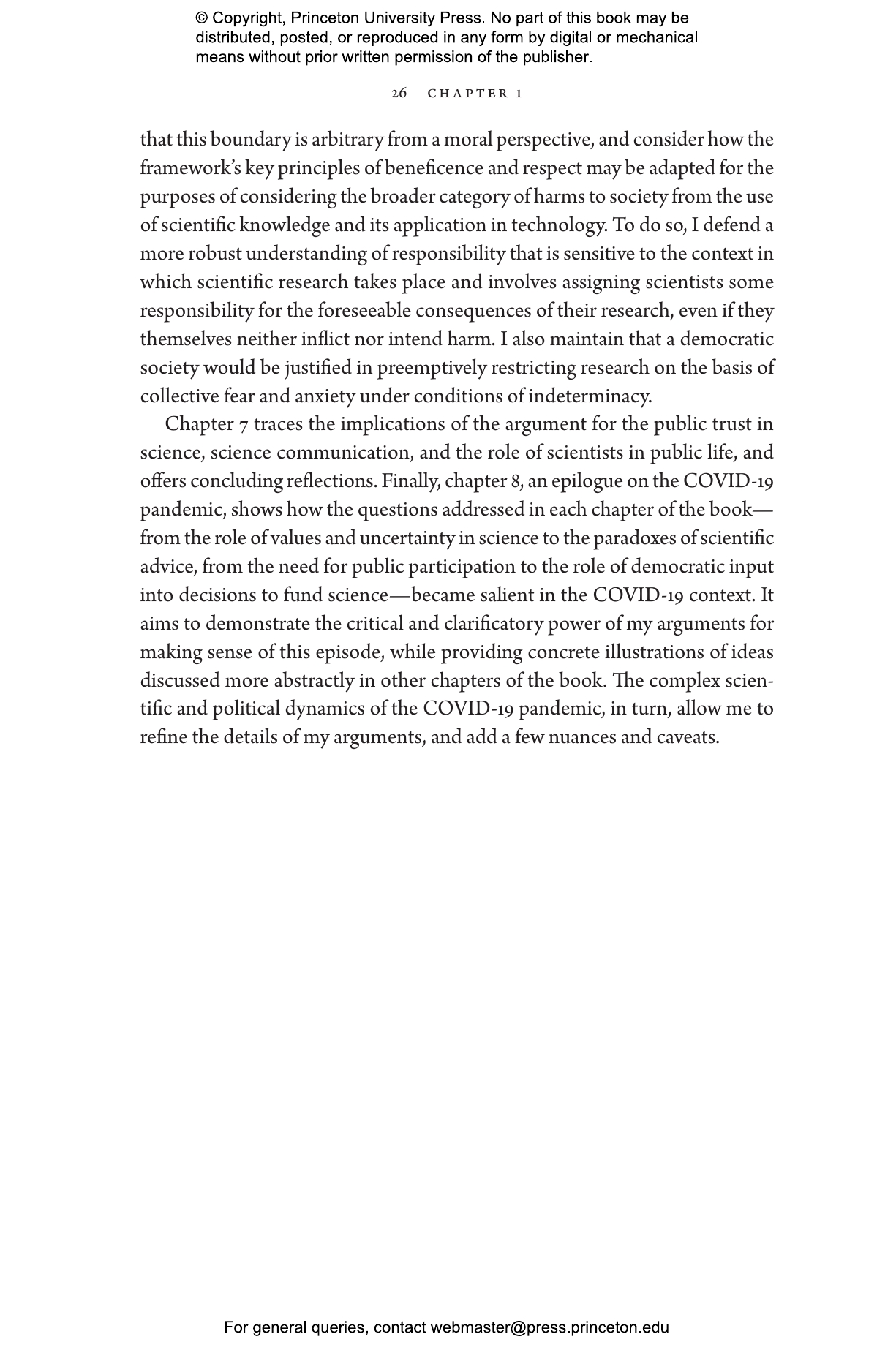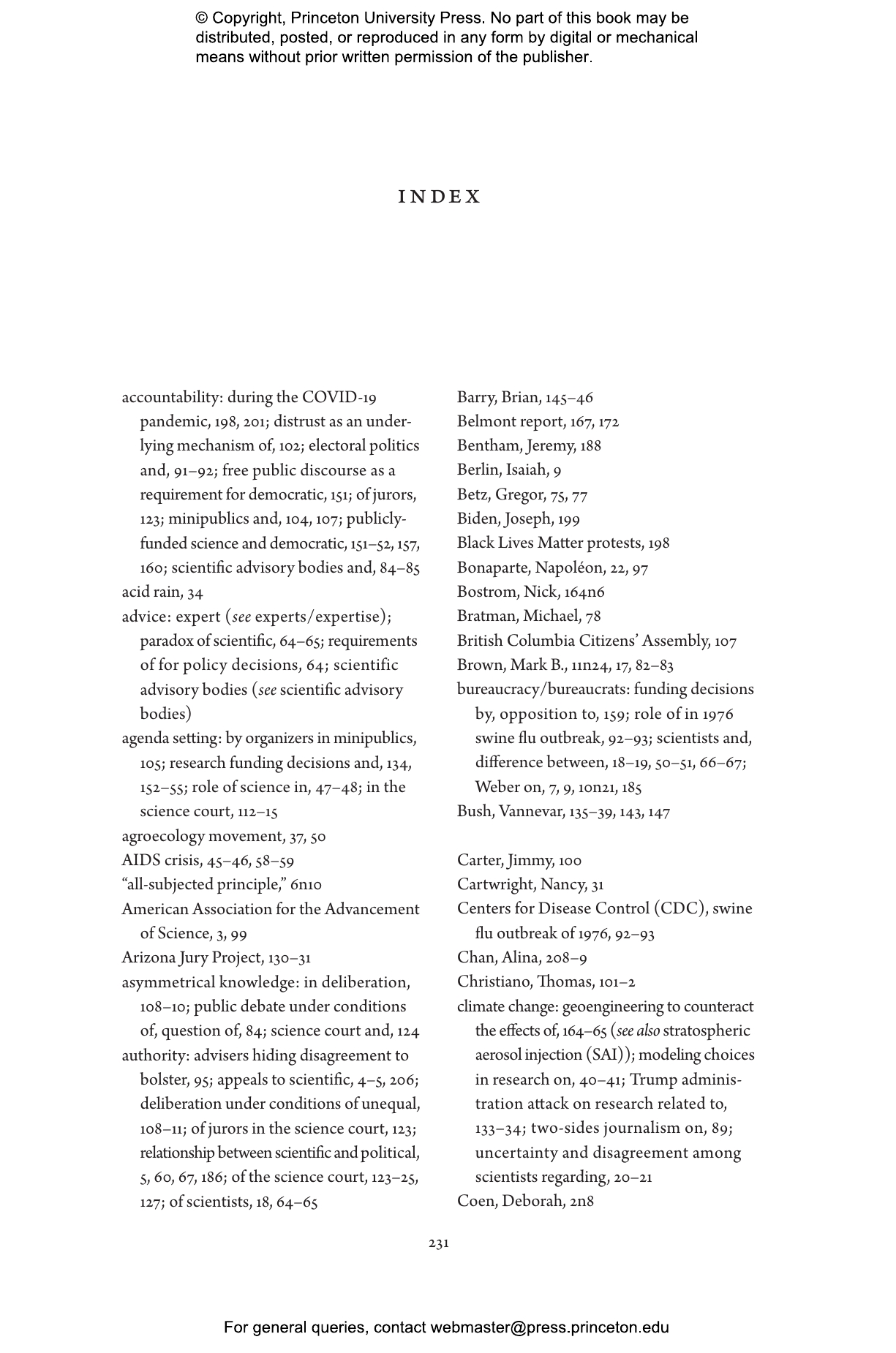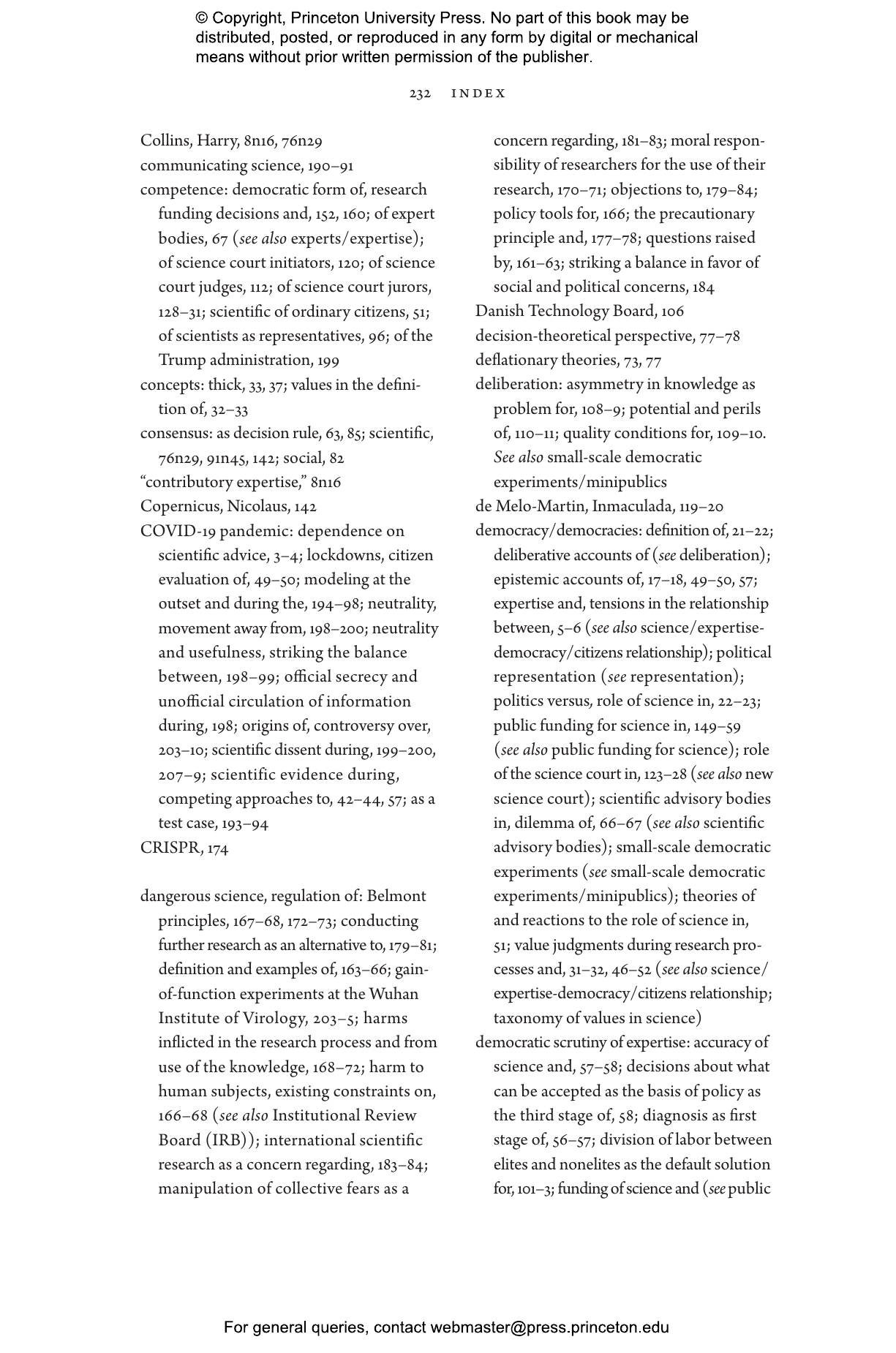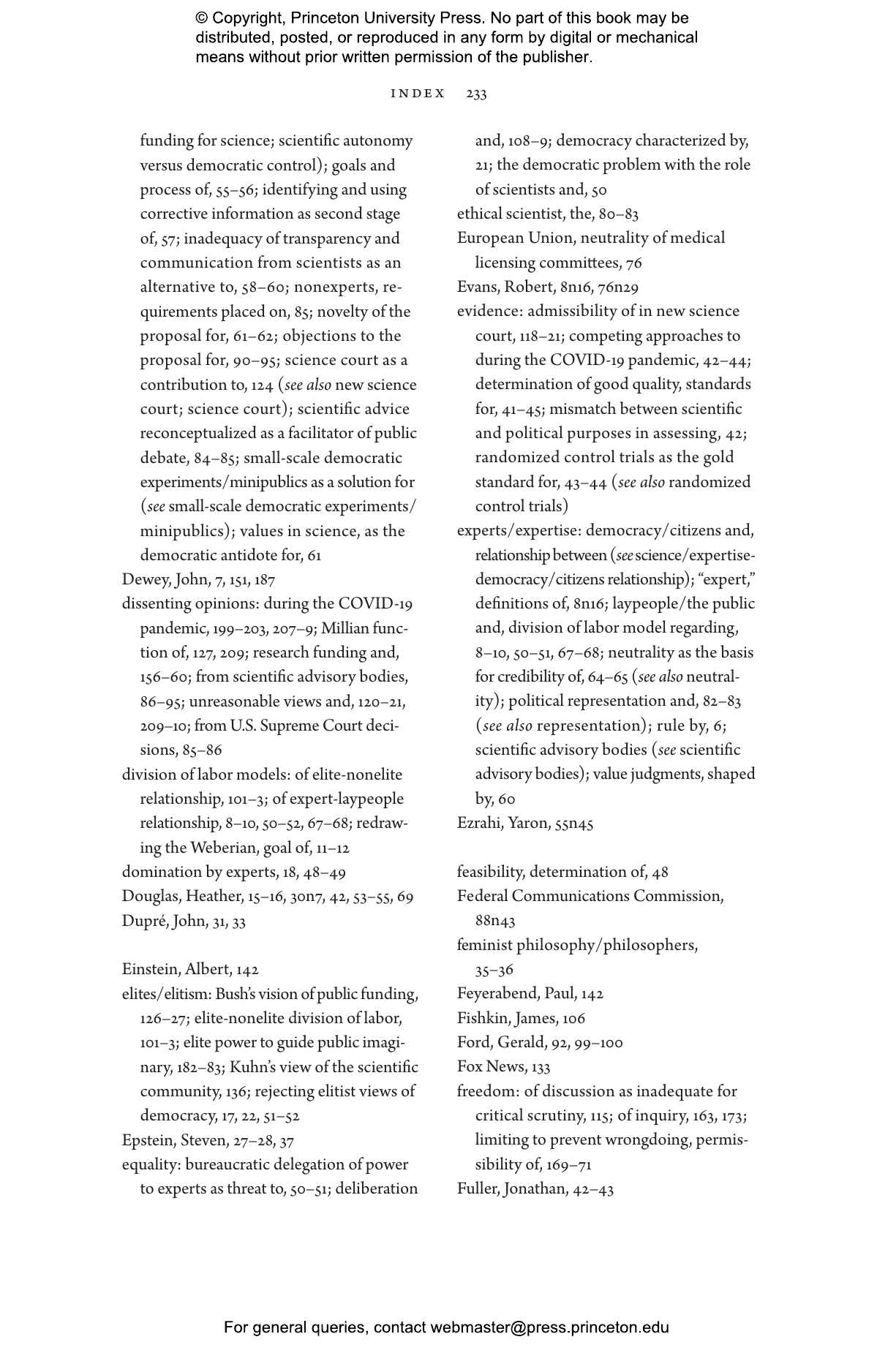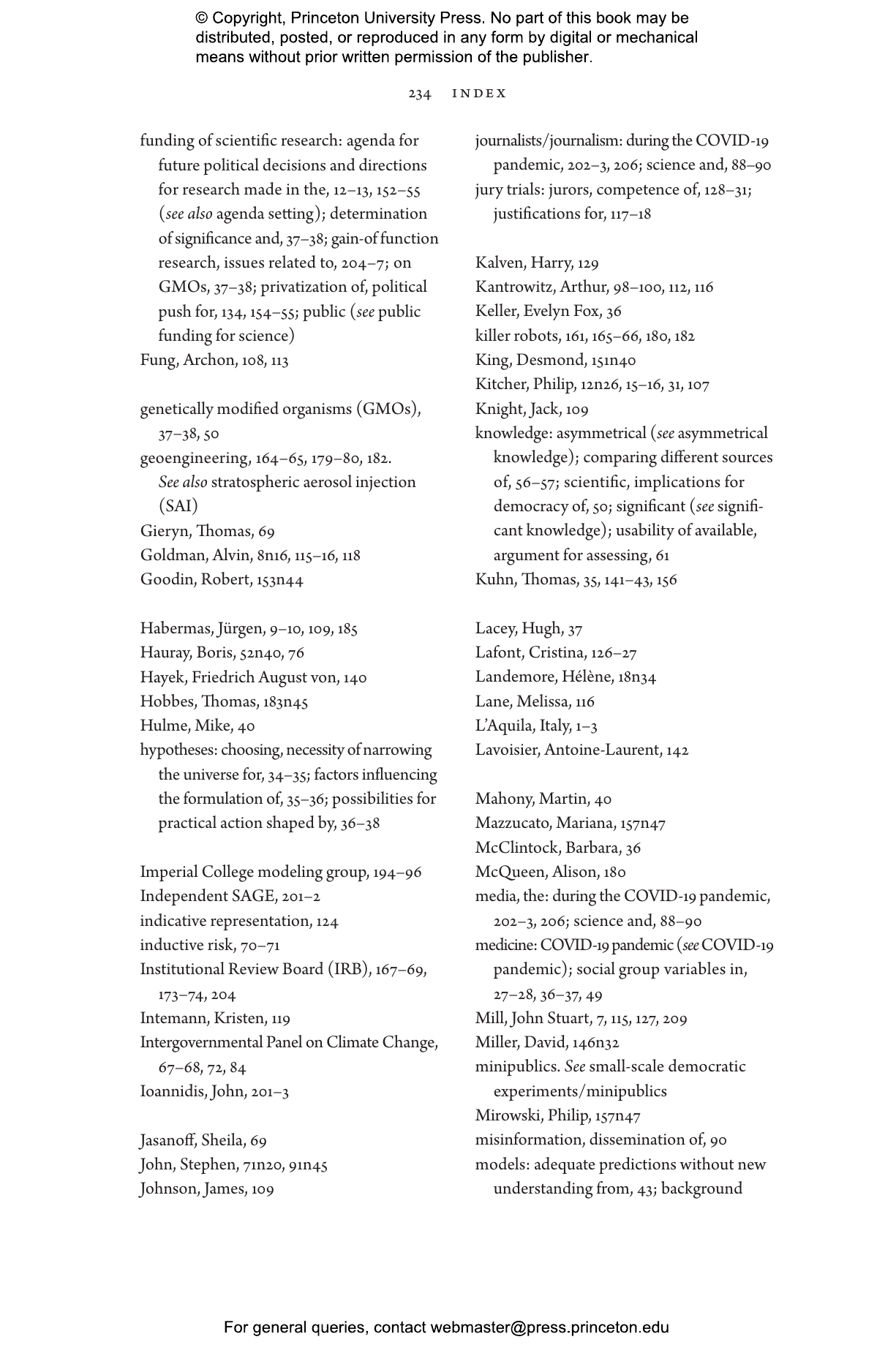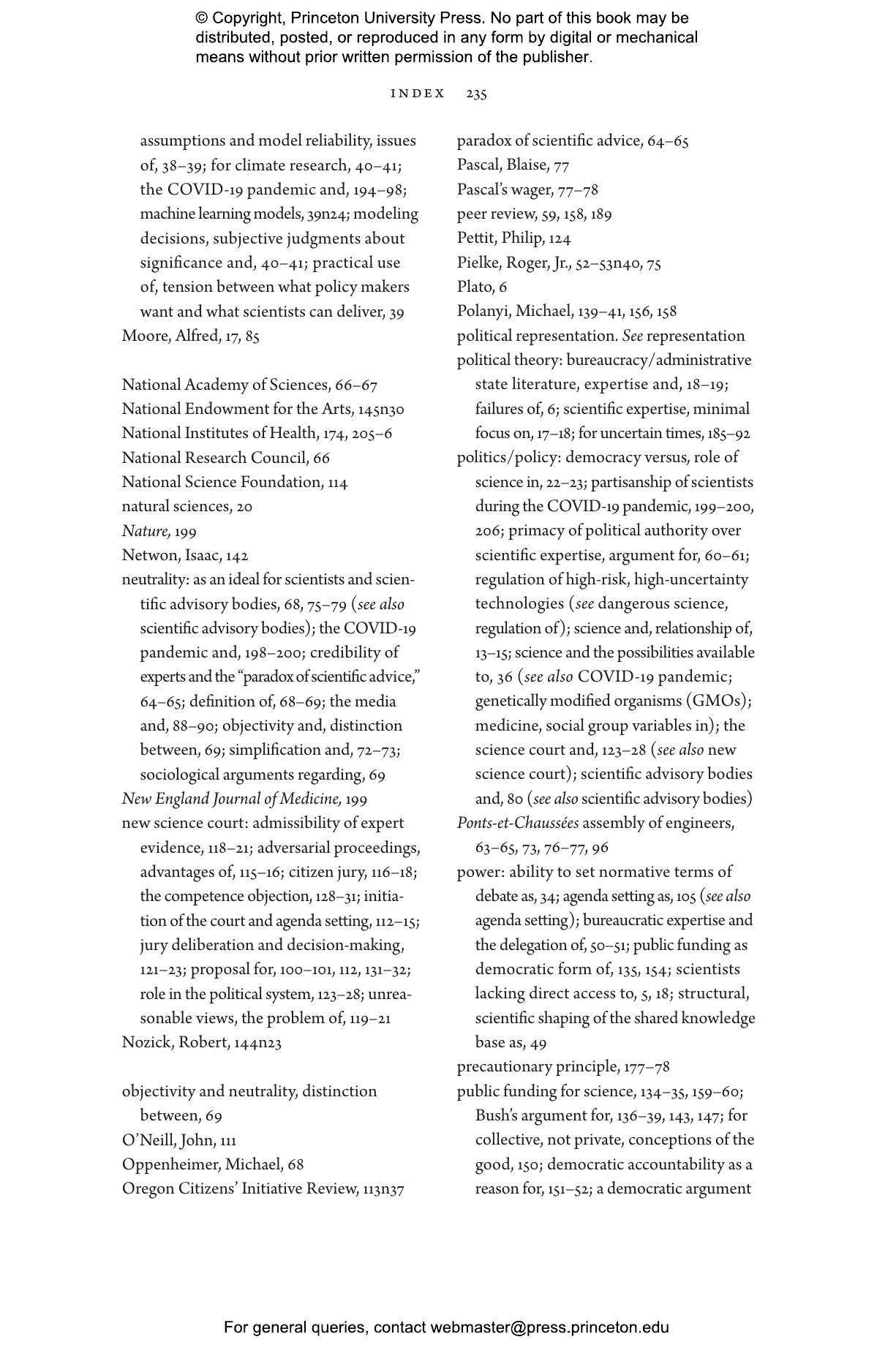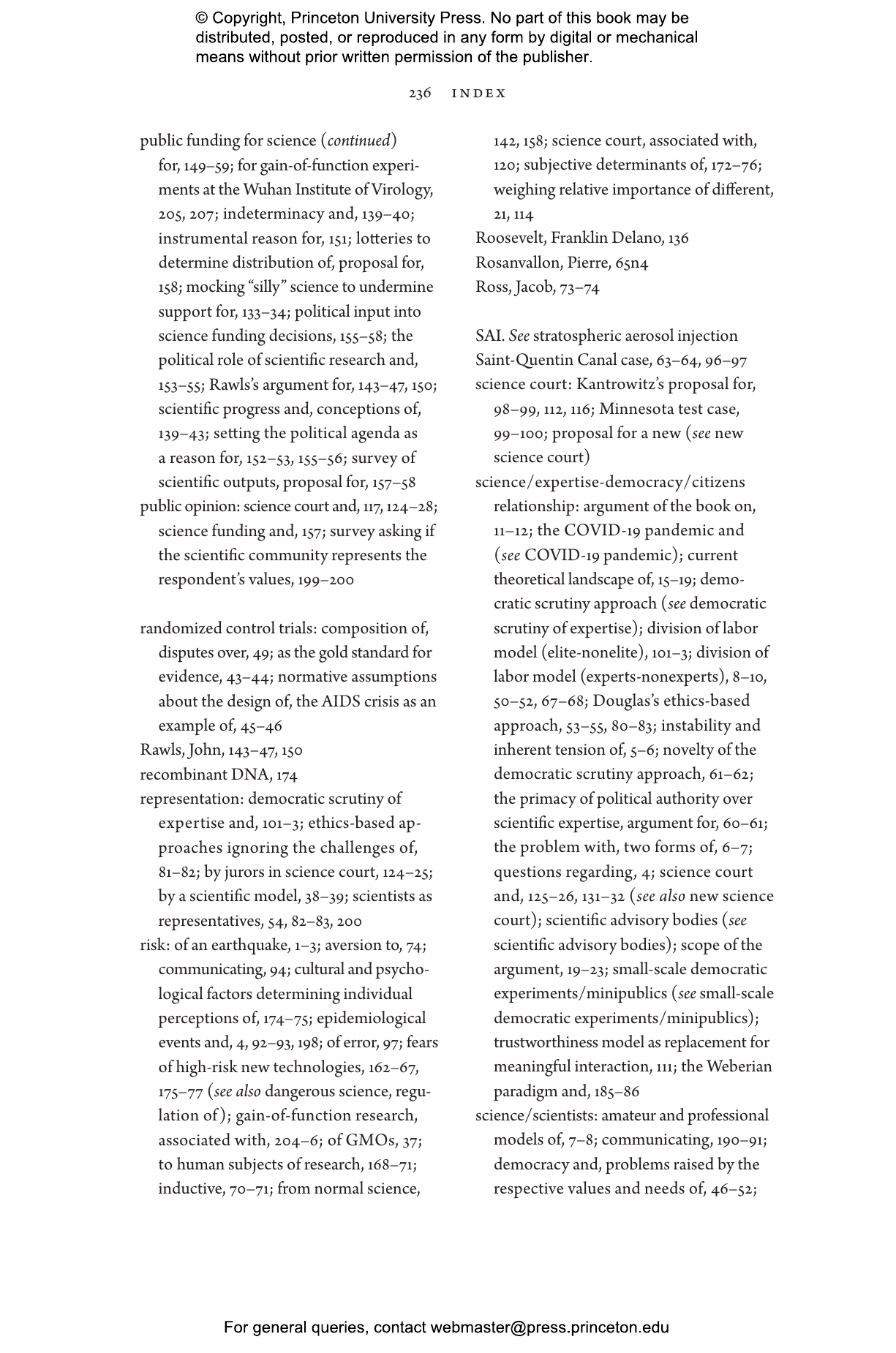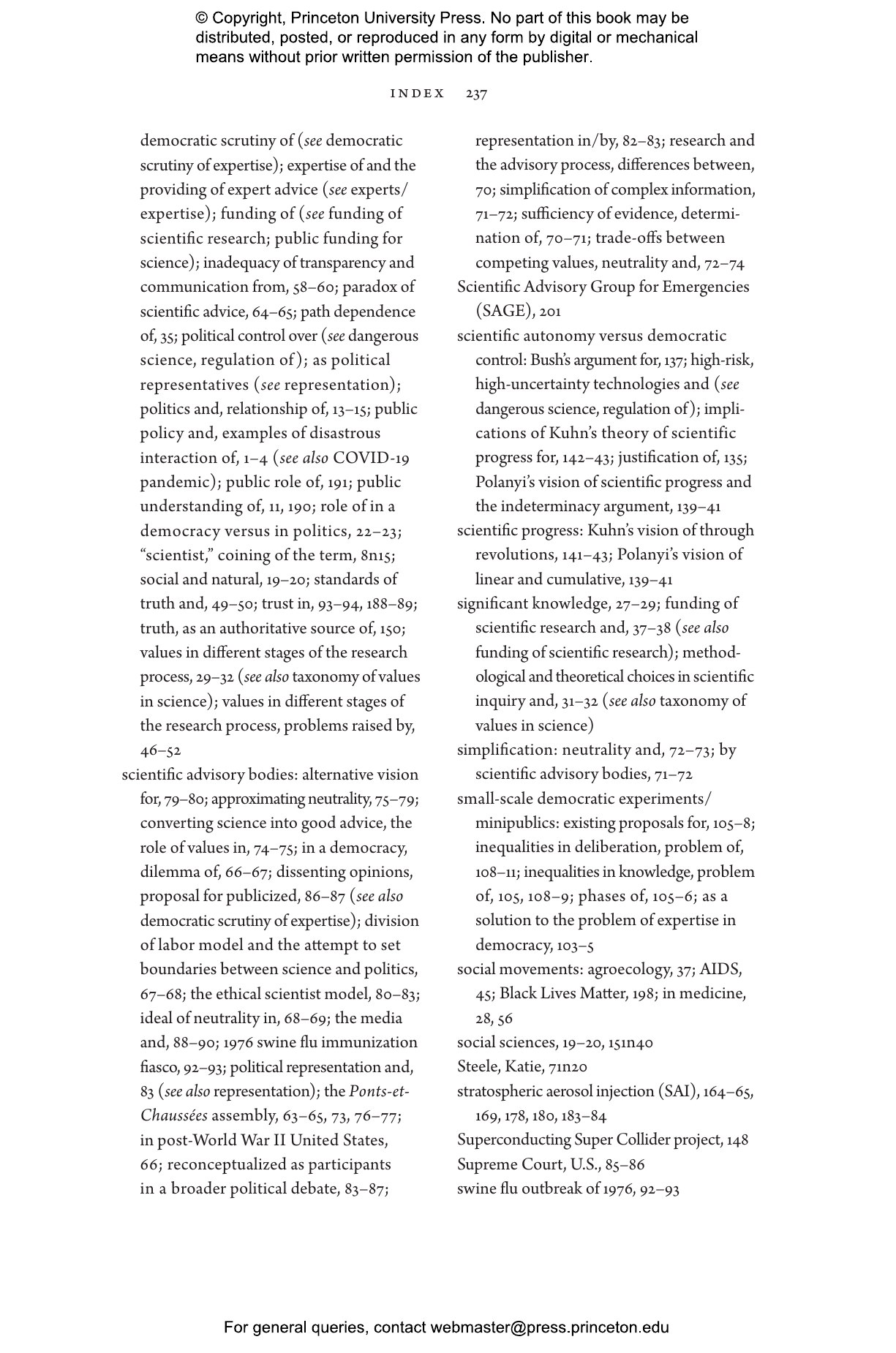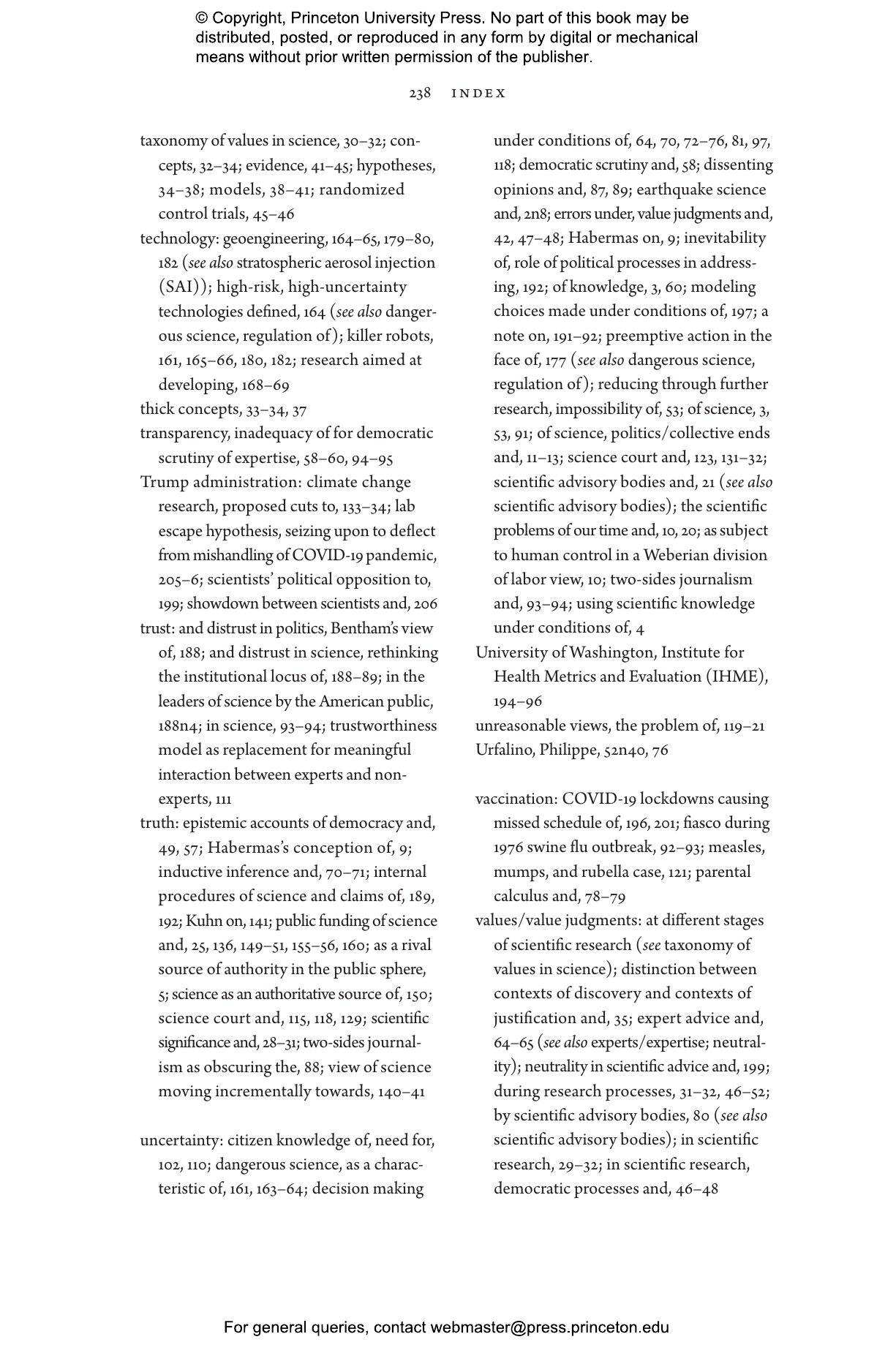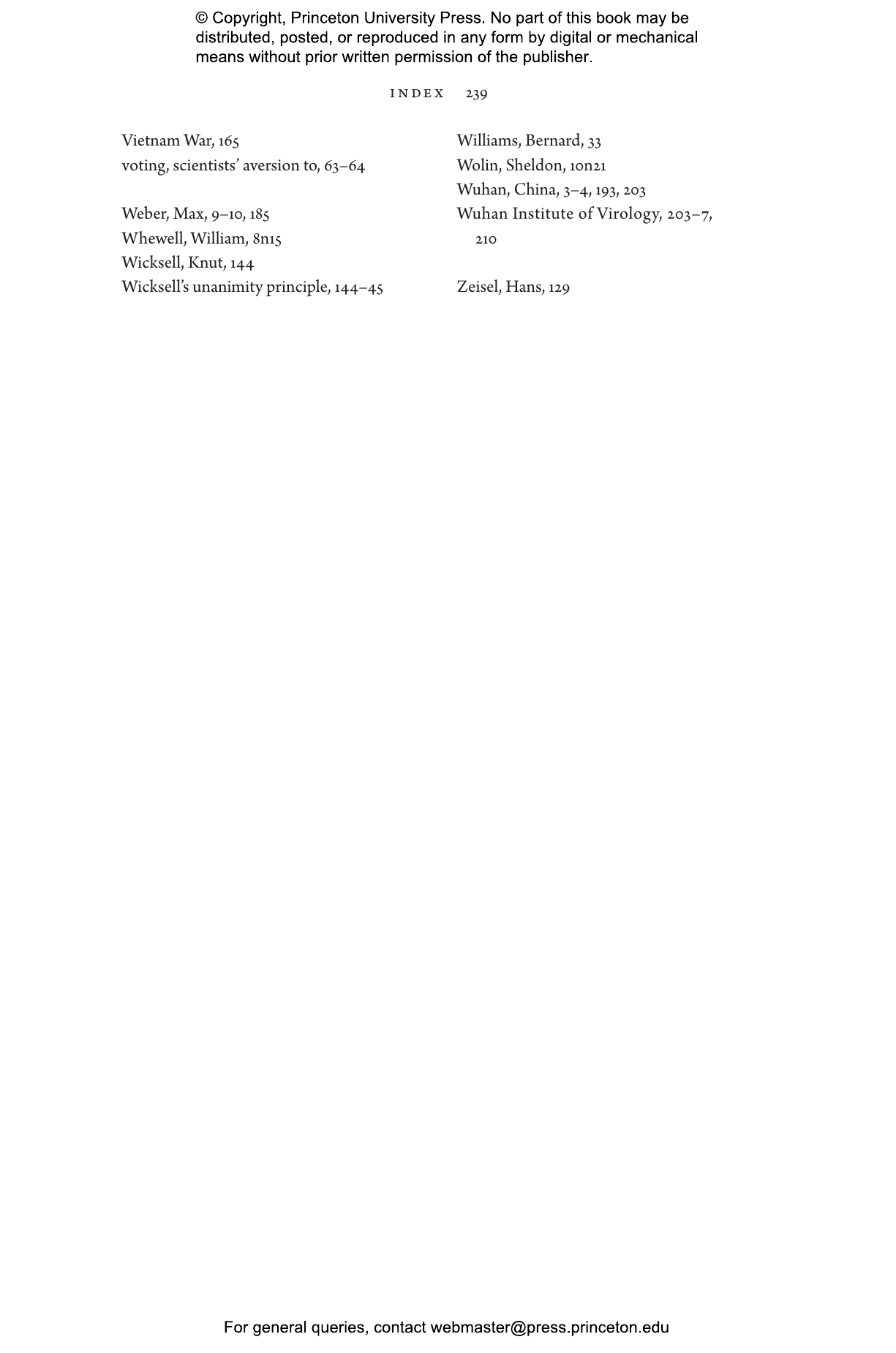Our ability to act on some of the most pressing issues of our time, from pandemics and climate change to artificial intelligence and nuclear weapons, depends on knowledge provided by scientists and other experts. Meanwhile, contemporary political life is increasingly characterized by problematic responses to expertise, with denials of science on the one hand and complaints about the ignorance of the citizenry on the other.
Politics and Expertise offers a new model for the relationship between science and democracy, rooted in the ways in which scientific knowledge and the political context of its use are imperfect. Zeynep Pamuk starts from the fact that science is uncertain, incomplete, and contested, and shows how scientists’ judgments about what is significant and useful shape the agenda and framing of political decisions. The challenge, Pamuk argues, is to ensure that democracies can expose and contest the assumptions and omissions of scientists, instead of choosing between wholesale acceptance or rejection of expertise. To this end, she argues for institutions that support scientific dissent, proposes an adversarial “science court” to facilitate the public scrutiny of science, reimagines structures for funding scientific research, and provocatively suggests restricting research into dangerous new technologies.
Through rigorous philosophical analysis and fascinating examples, Politics and Expertise moves the conversation beyond the dichotomy between technocracy and populism and develops a better answer for how to govern and use science democratically.
Awards and Recognition
- Winner of the Foundations of Political Theory Section First Book Award, American Political Science Association
Zeynep Pamuk is assistant professor of political science at the University of California, San Diego.
"In a post-COVID world where contestation of both science and public institutions is on the rise, Pamuk’s book will remain a central point of reference for institutional theorists in the years to come."—Mikołaj Szafrański, LSE Review of Books
"It is not often that we come across a book that comprehensively identifies, addresses and explores the very problems that are currently affecting the daily lives of us all. . . . In the midst of the ongoing controversies surrounding issues like COVID, climate change and genetic engineering (to name but a few), this contribution could not be more relevant or more welcome."—Oliver Dowen, Political Studies Review
"Illuminating. . . . Pamuk provides an exceptionally clear and nuanced analysis of many complex issues, and she offers promising institutional proposals for improving the role of scientific research and expert advice in democratic politics"—Mark B. Brown, Perspectives on Politics
"Lucid, rigorous, and tightly written. . . . Pamuk has accomplished a great deal of analytical and imaginative work, and as debates about the proper relationship between politics and science continue to develop, Politics and Expertise is guaranteed to remain a touchstone in and beyond the field of political theory."—Matthew Benjamin Cole, The Review of Politics
"As the world confronts climate change with increasing urgency amid a devastating pandemic, few books are more timely than this lucid examination of the tensions between science and democracy. In accessible and erudite terms, Pamuk asks what democracies can reasonably ask of science and how they can make better use of it. Moving seamlessly from philosophical debates to pragmatic realities, Politics and Expertise deserves the attention of policymakers and concerned citizens alike."—Peter Hall, Harvard University
“Sophisticated and innovative, Politics and Expertise addresses the important question of how to negotiate the tense relationship between science and democracy. Striking the right balance between debates in philosophy of science and normative democratic theory, Pamuk is fair-minded in acknowledging similarities among existing approaches, while also highlighting what is distinctive. Her specific ideas about institutional design are bound to spark debate.”—Jan-Werner Müller, author of Democracy Rules
“Science is vital for political decision making. Yet scientific expertise can be uncertain, incomplete, contradictory, and, sometimes, dangerous. In this groundbreaking book, Pamuk makes a powerful case for the democratic scrutiny of science. This is an incisive, erudite, and wise intervention, made all the more urgent by the recent Covid crisis.”—Cécile Laborde, University of Oxford
